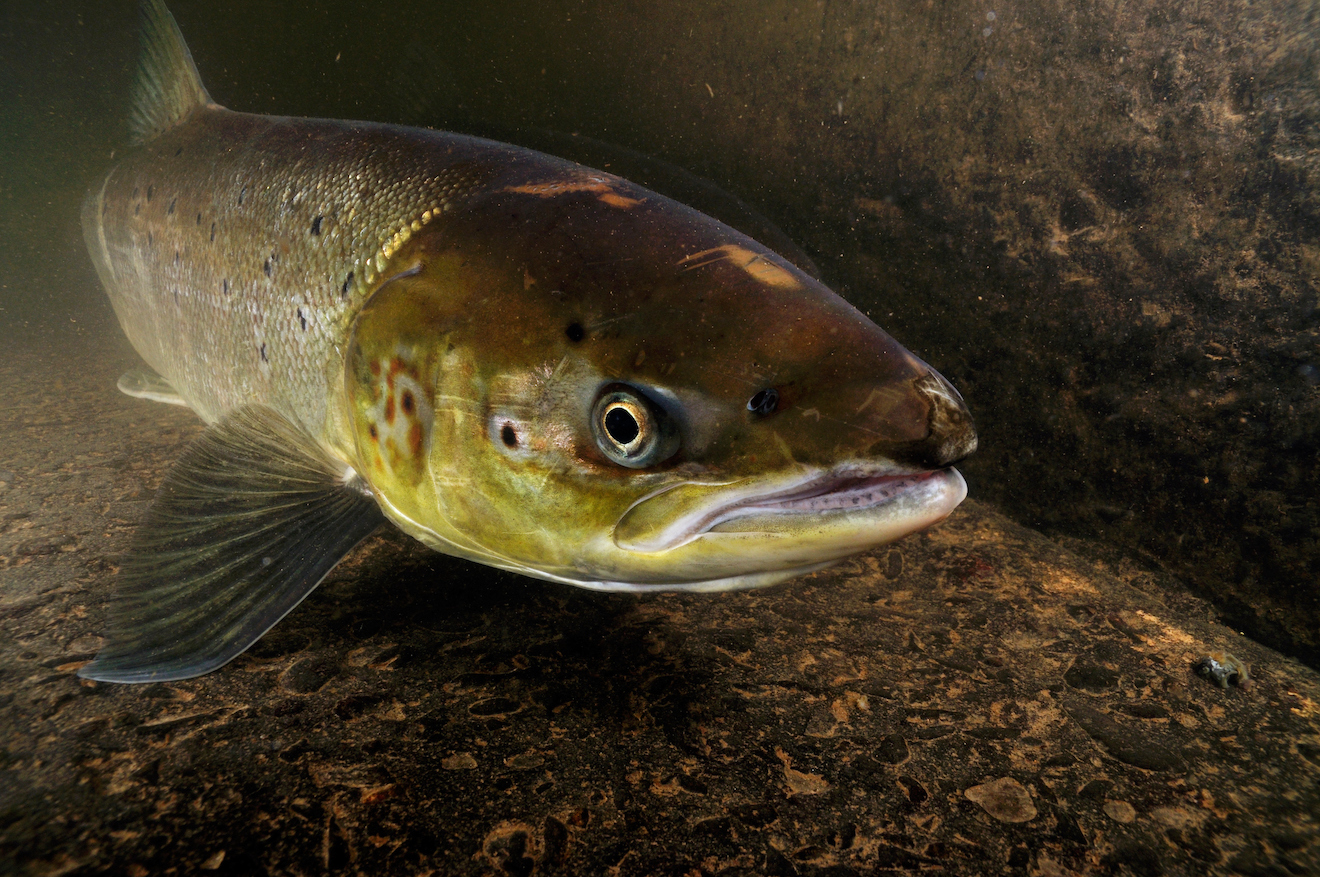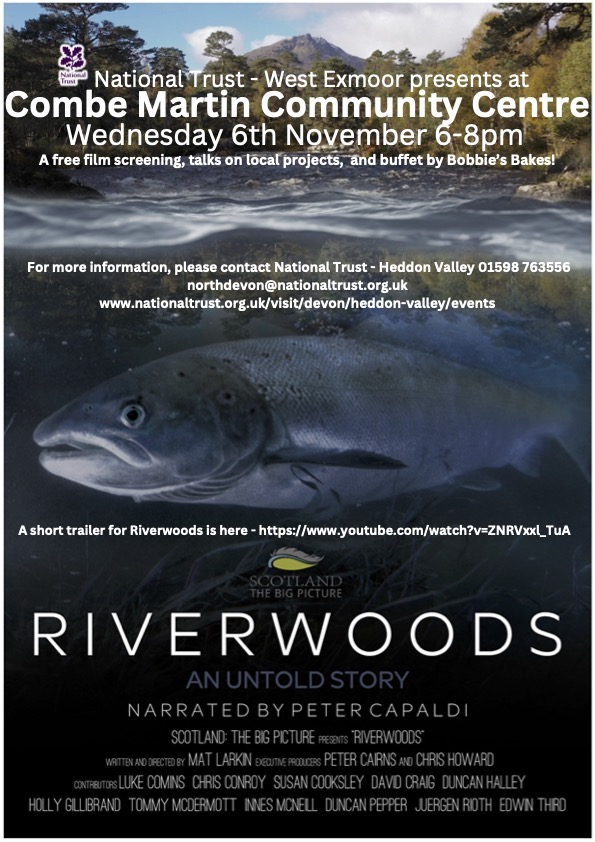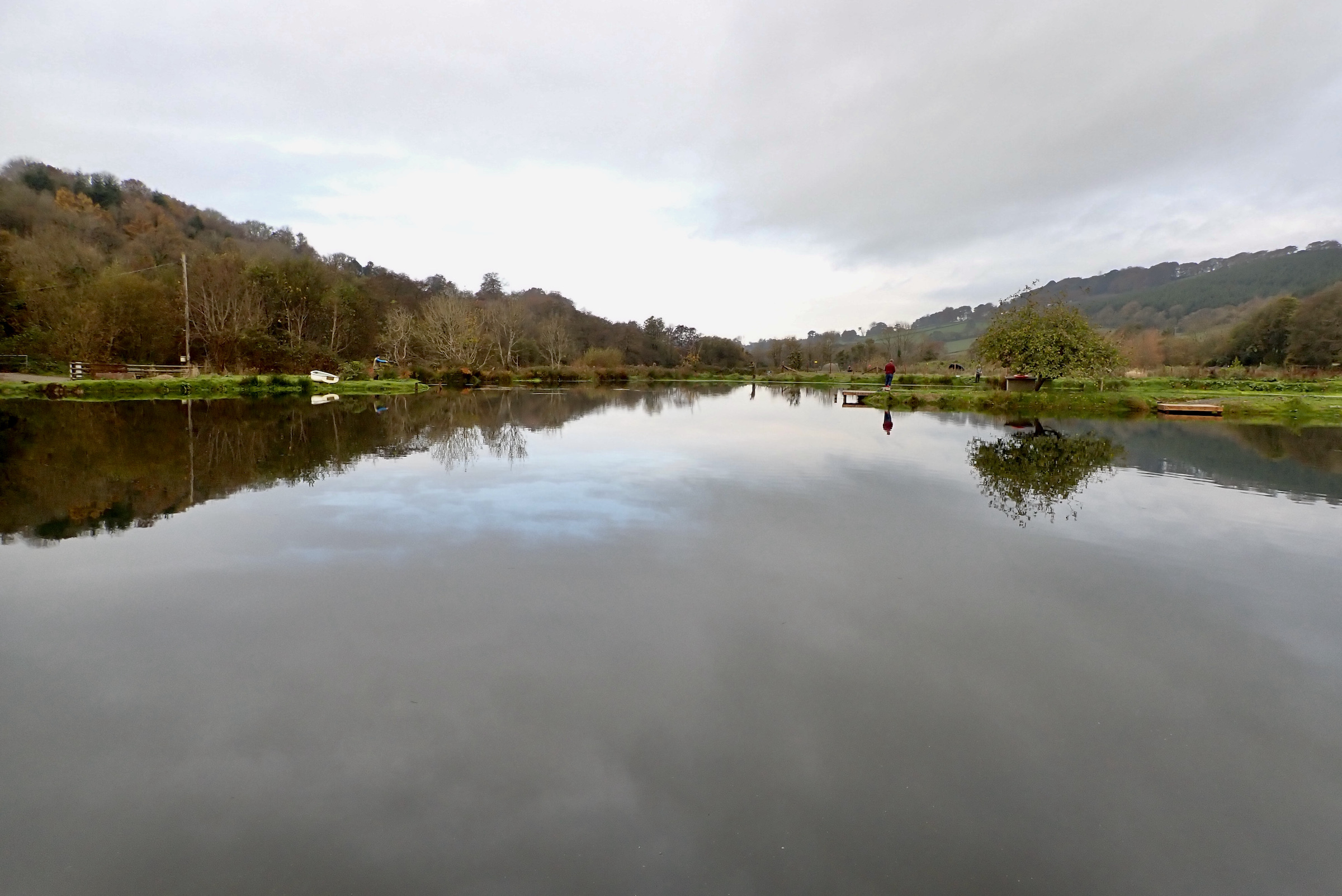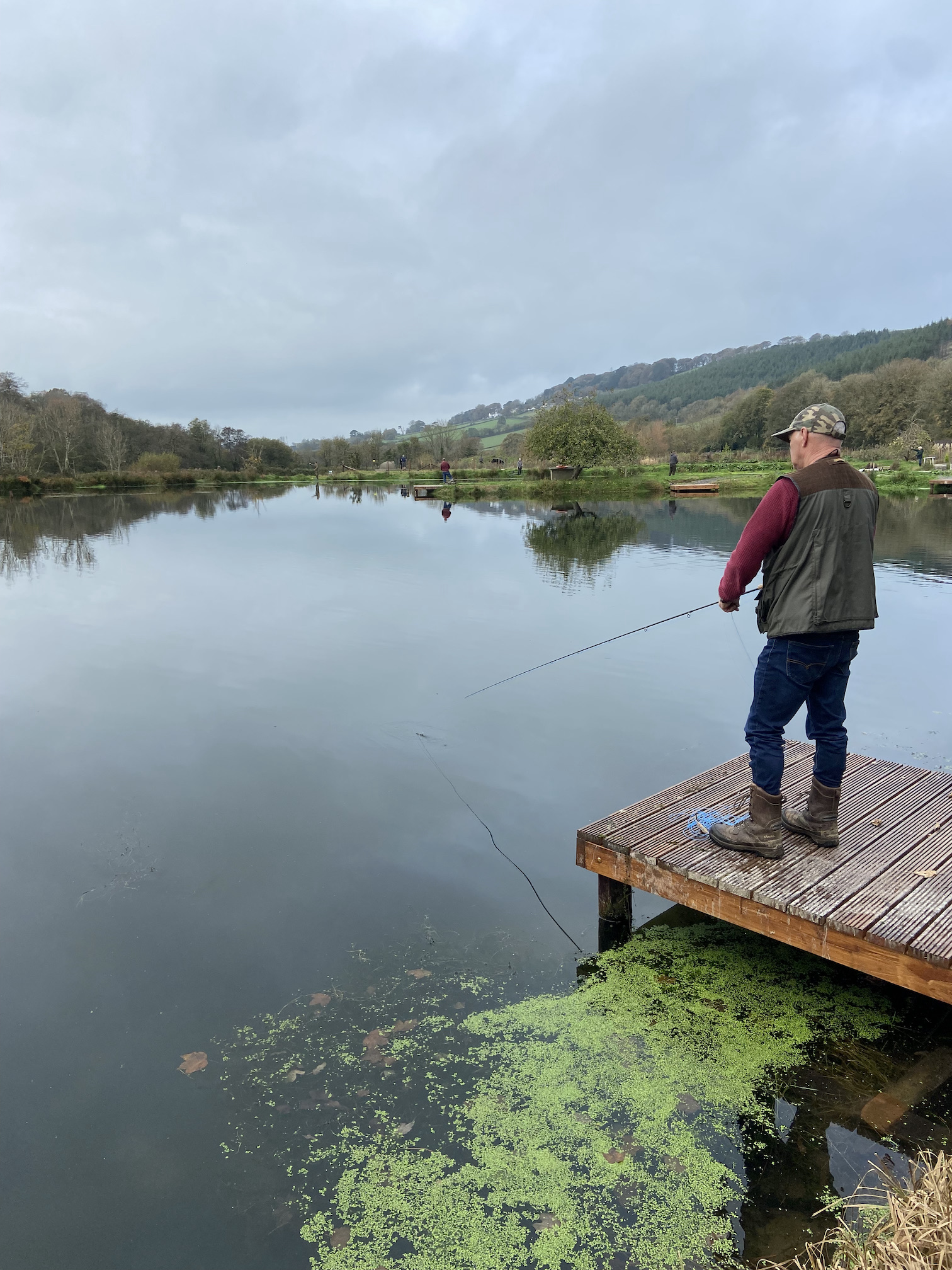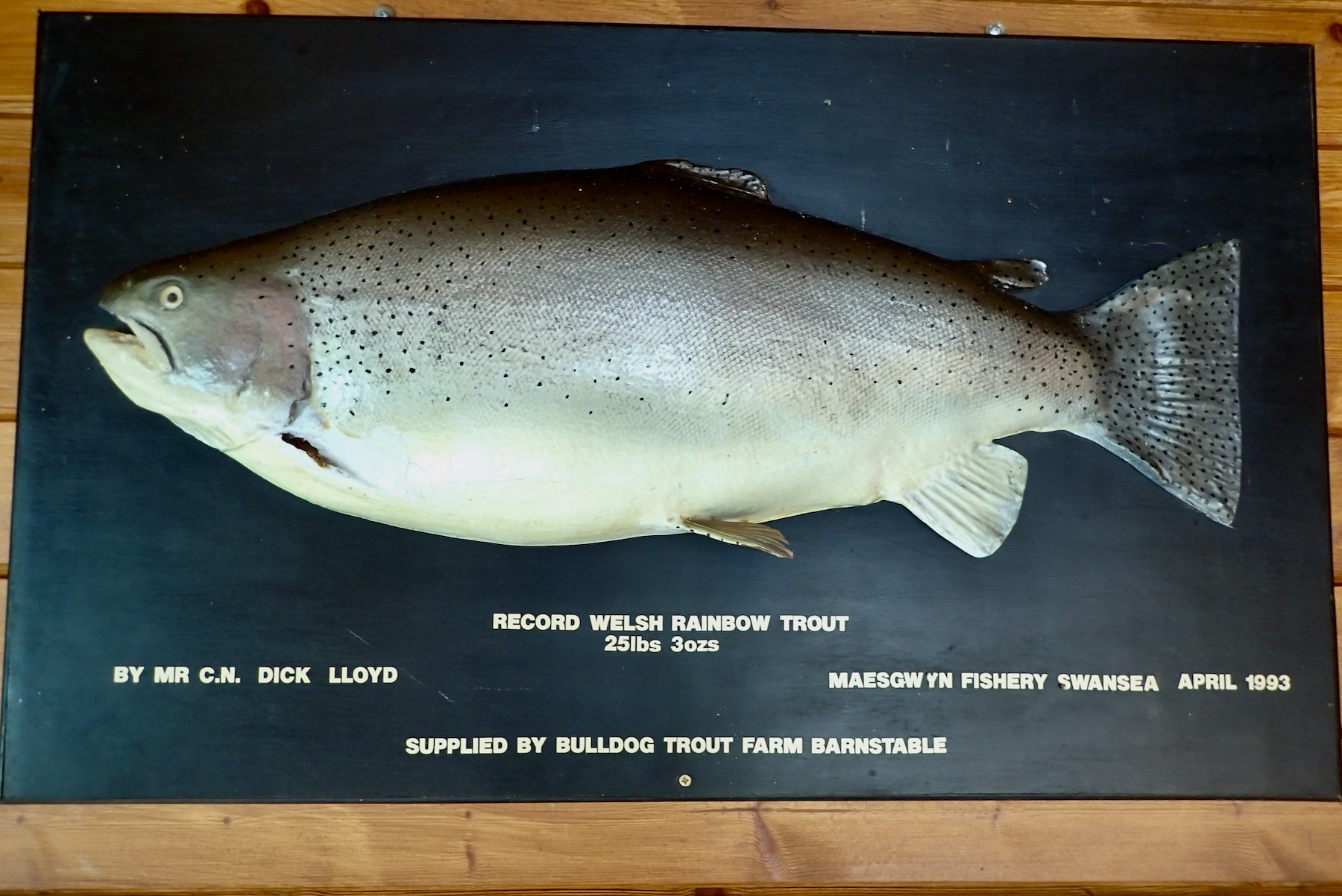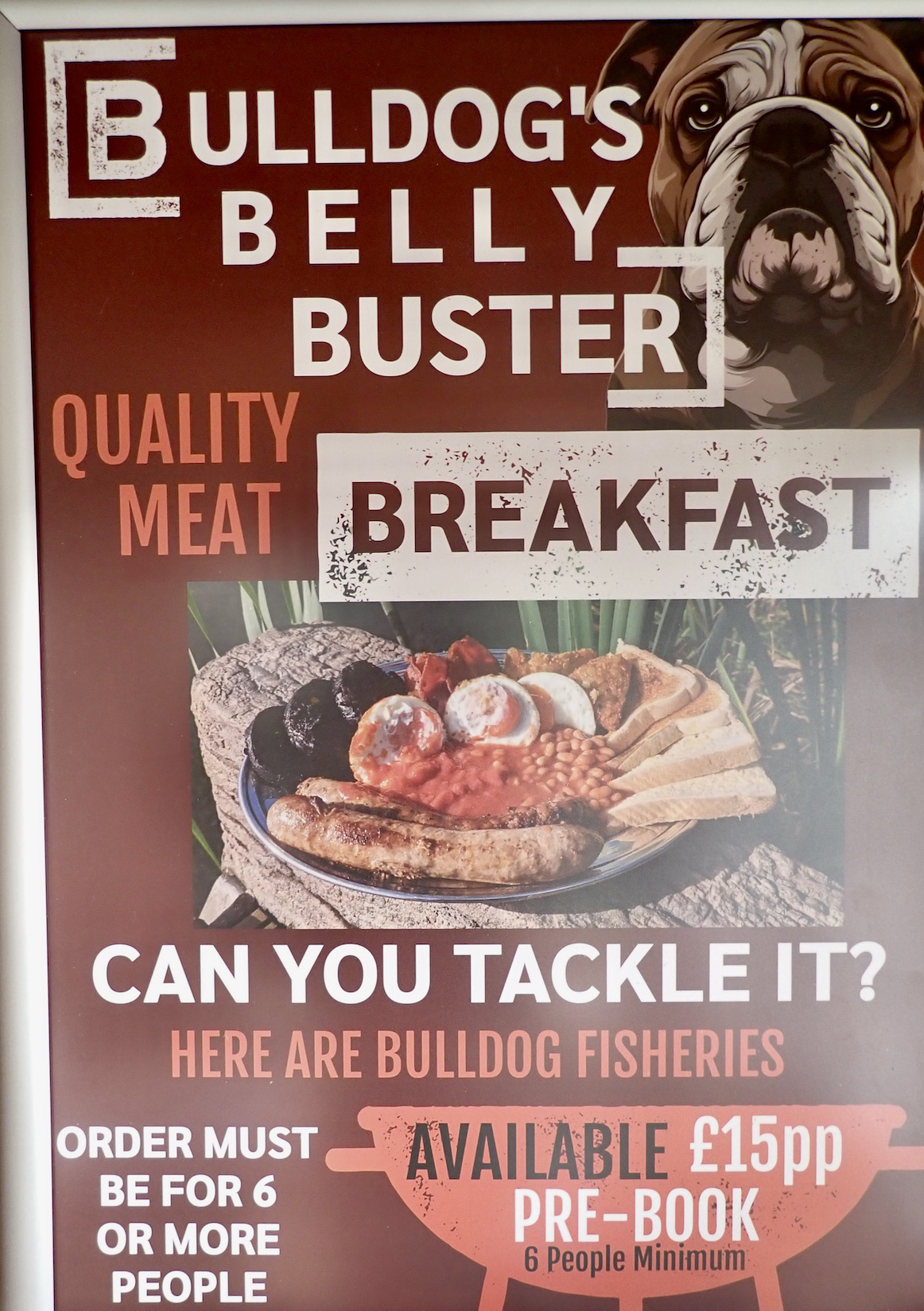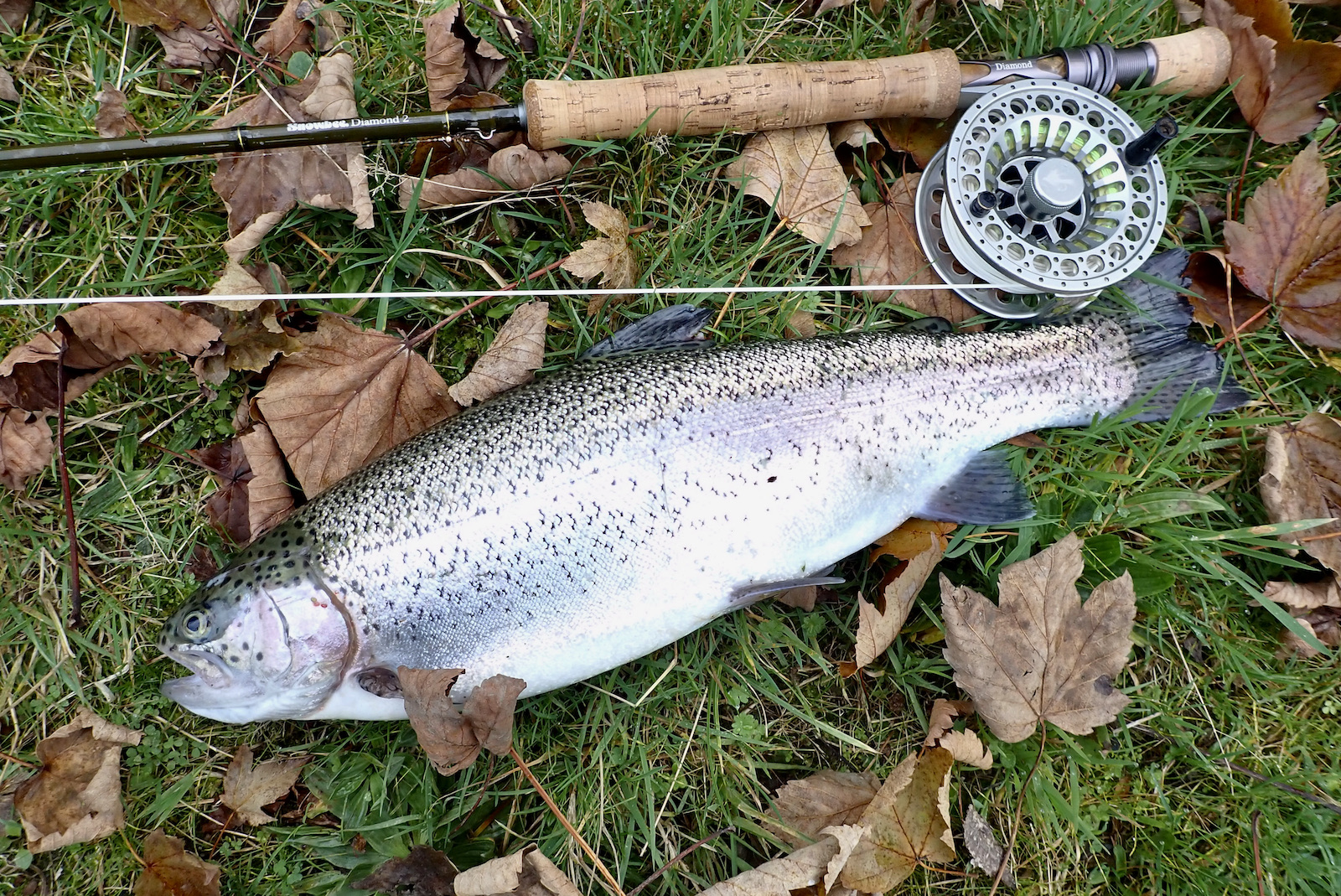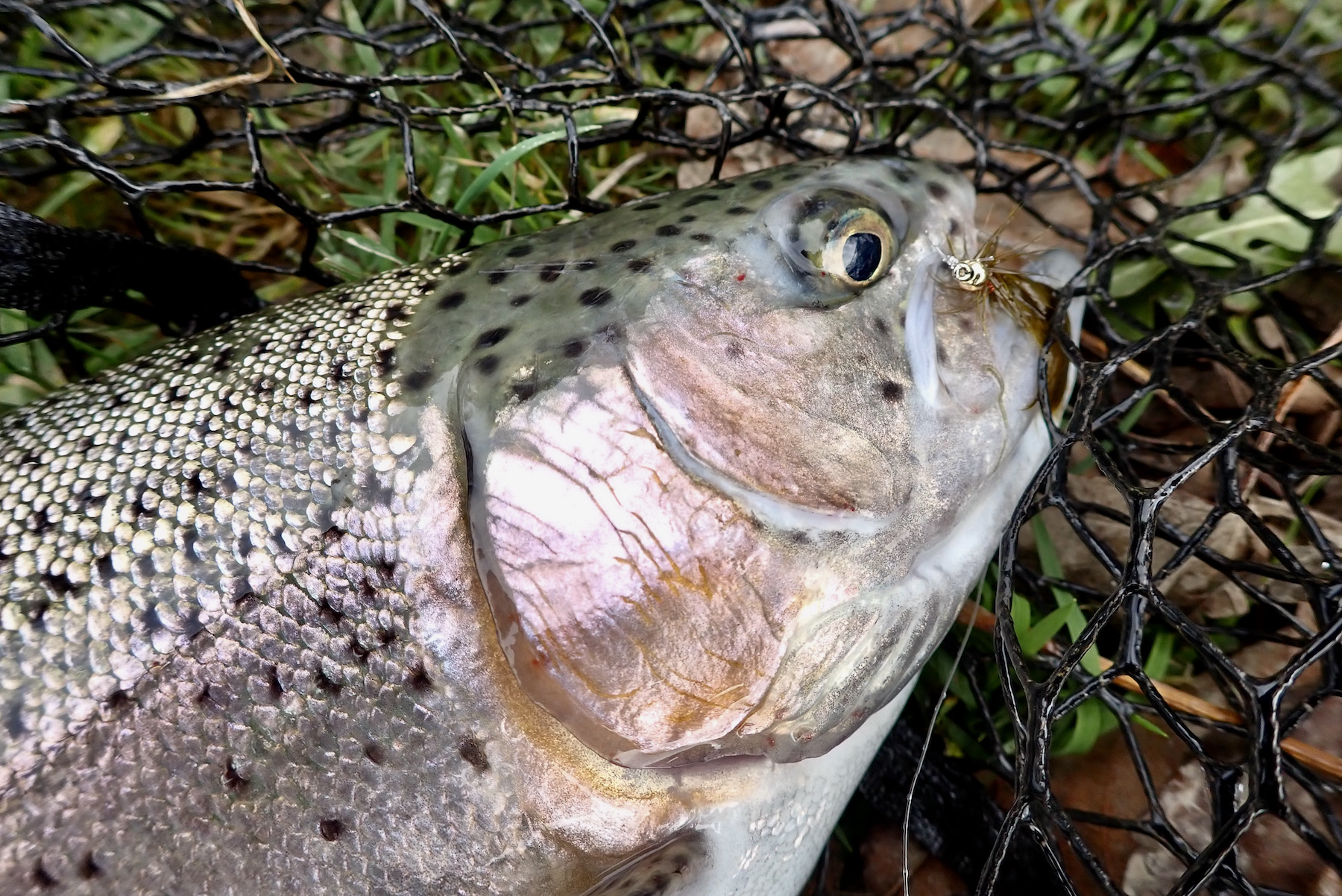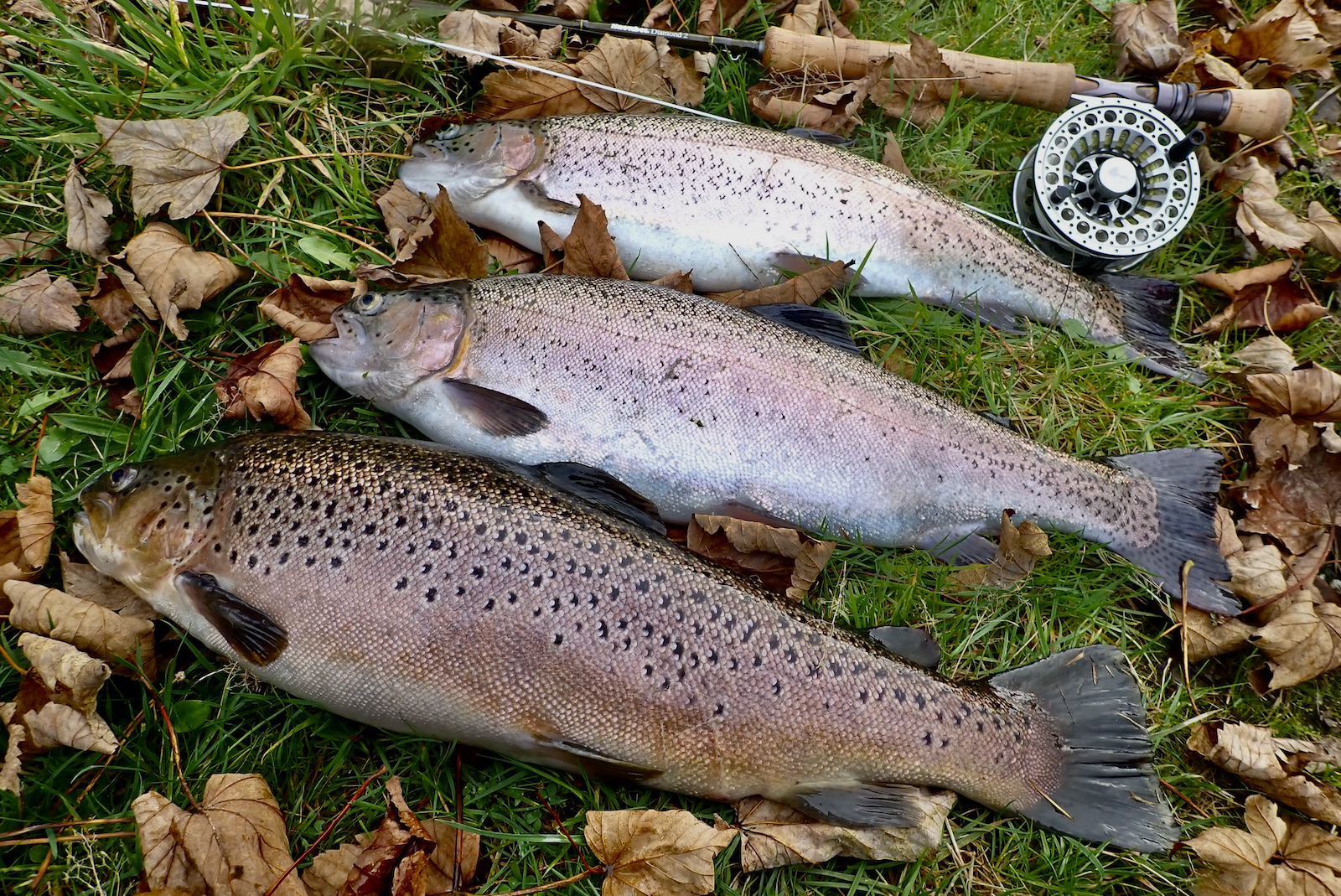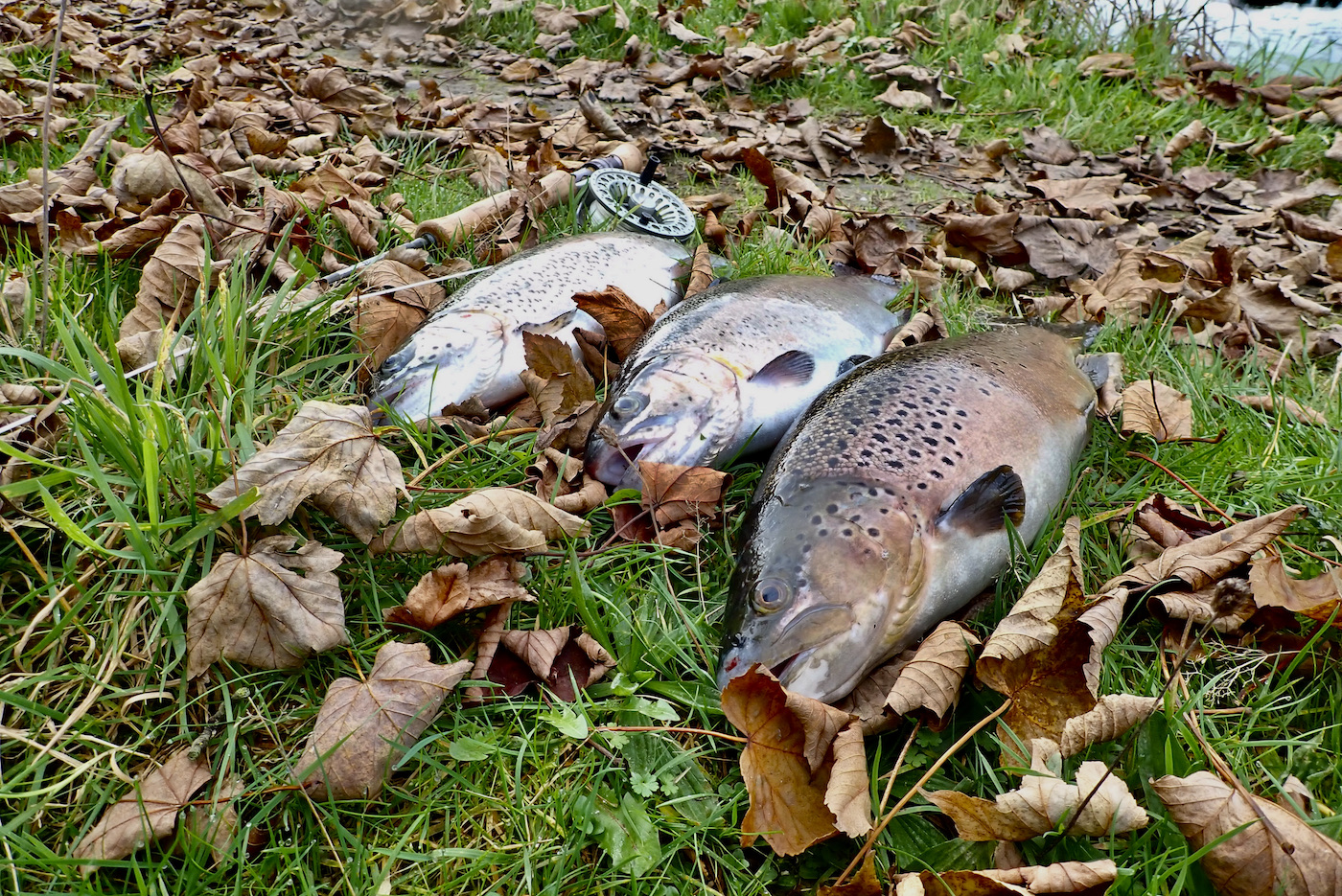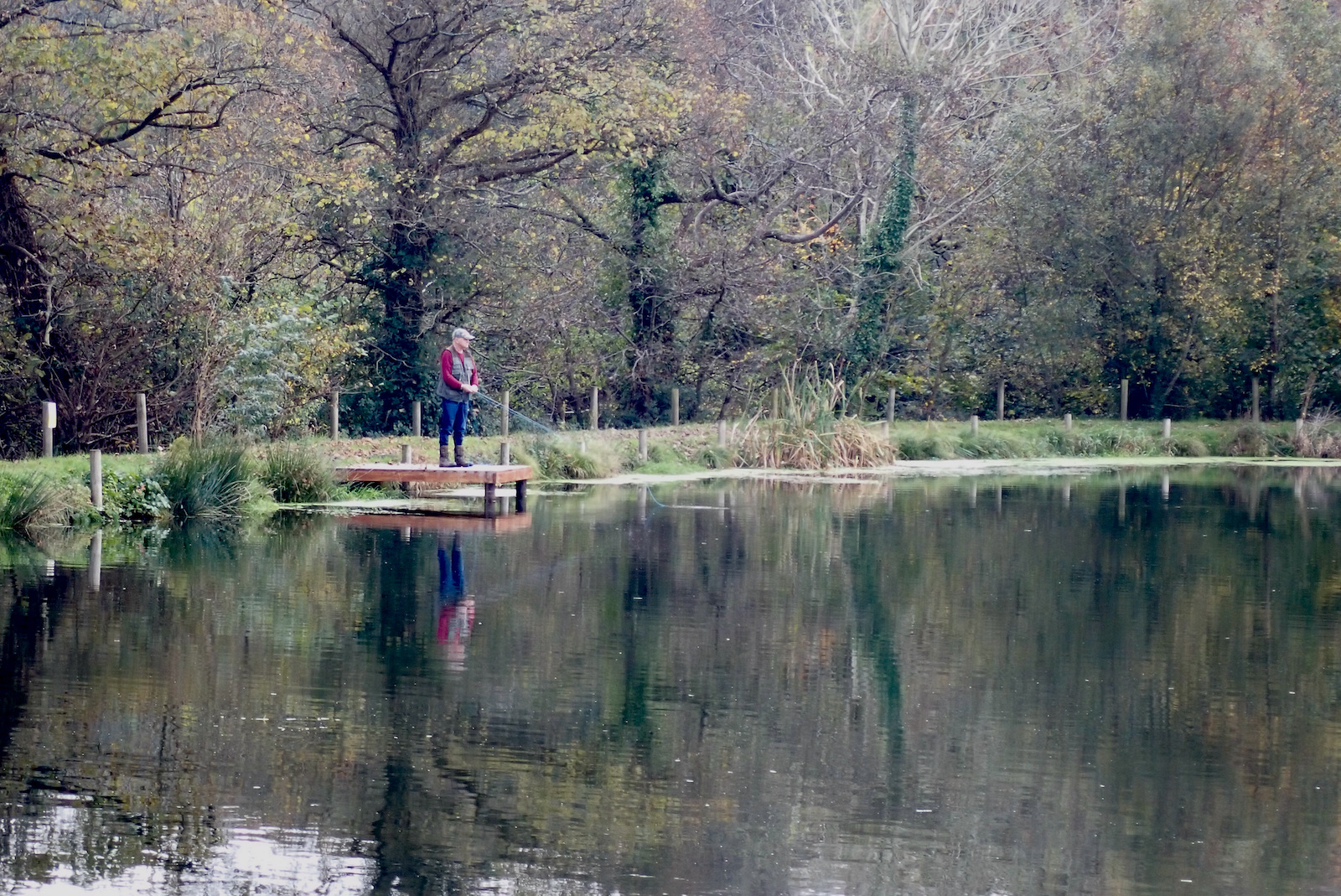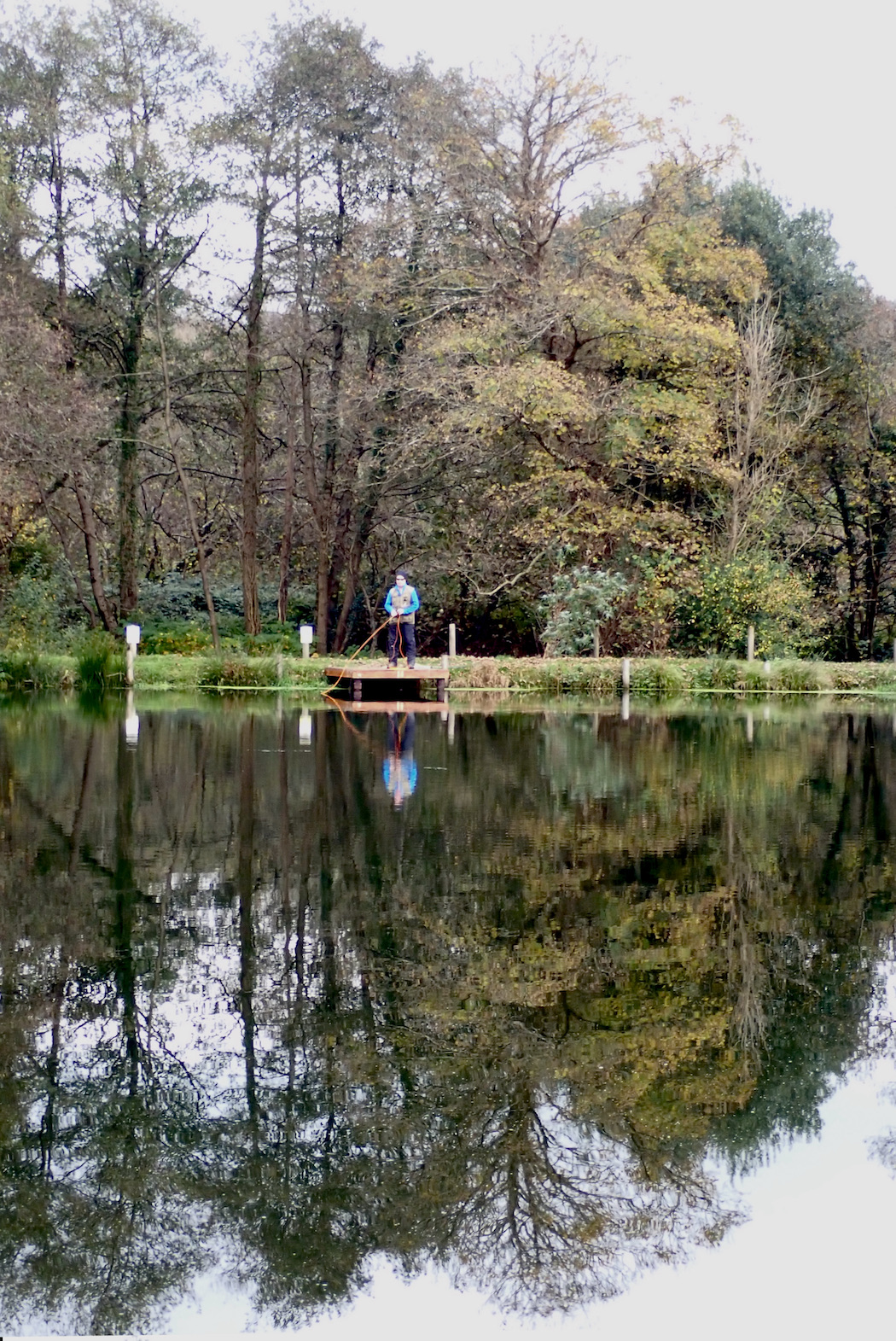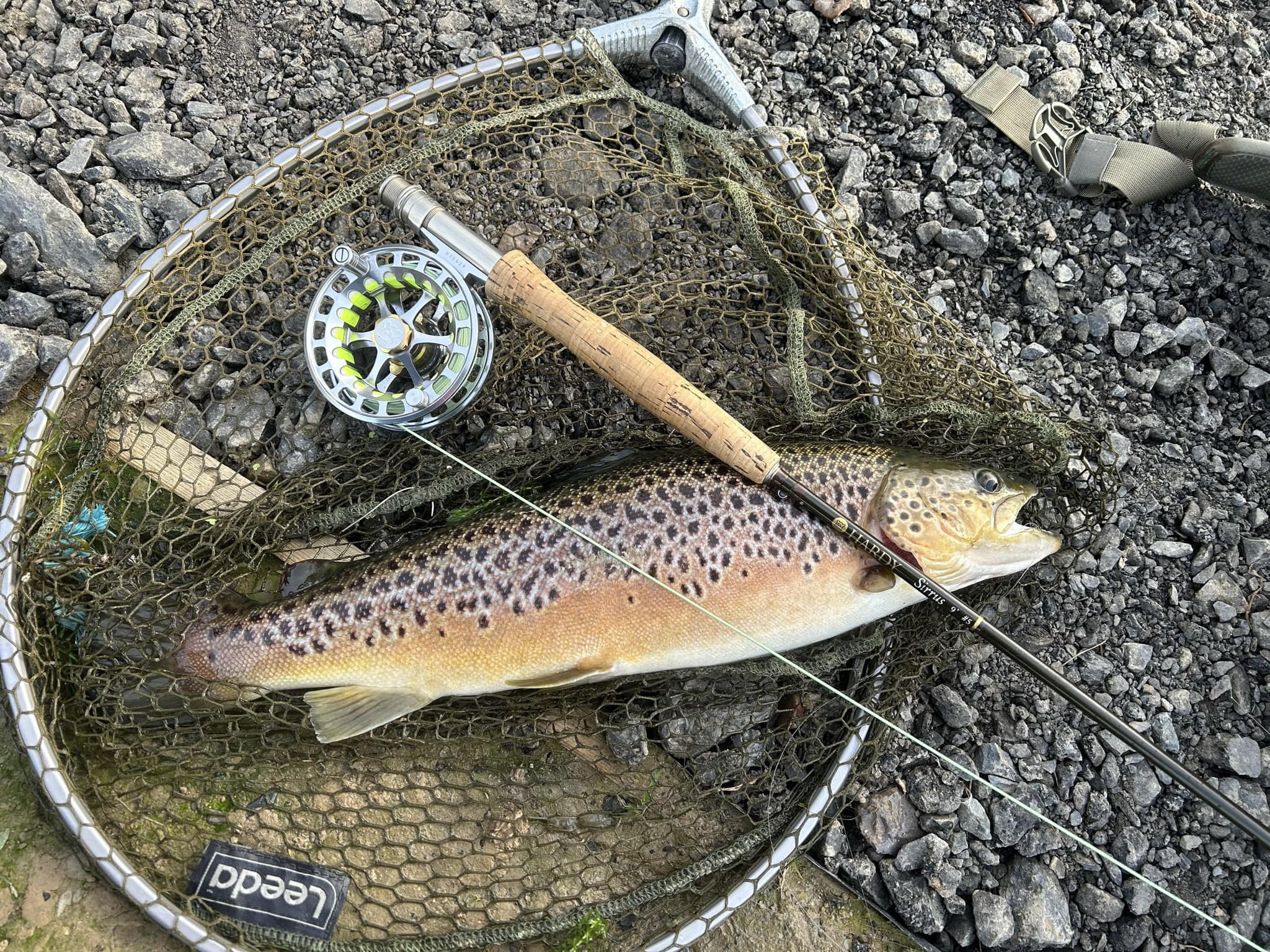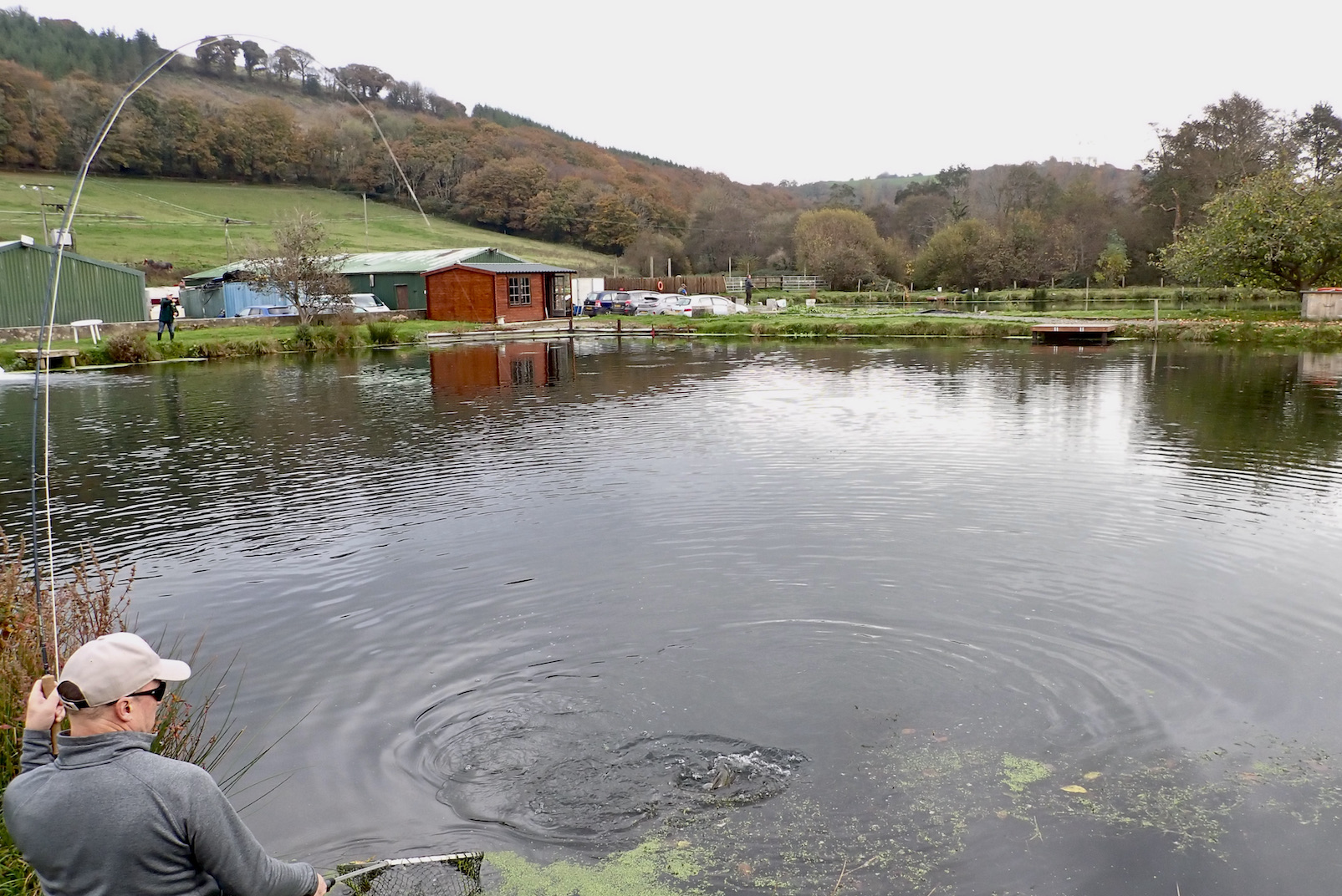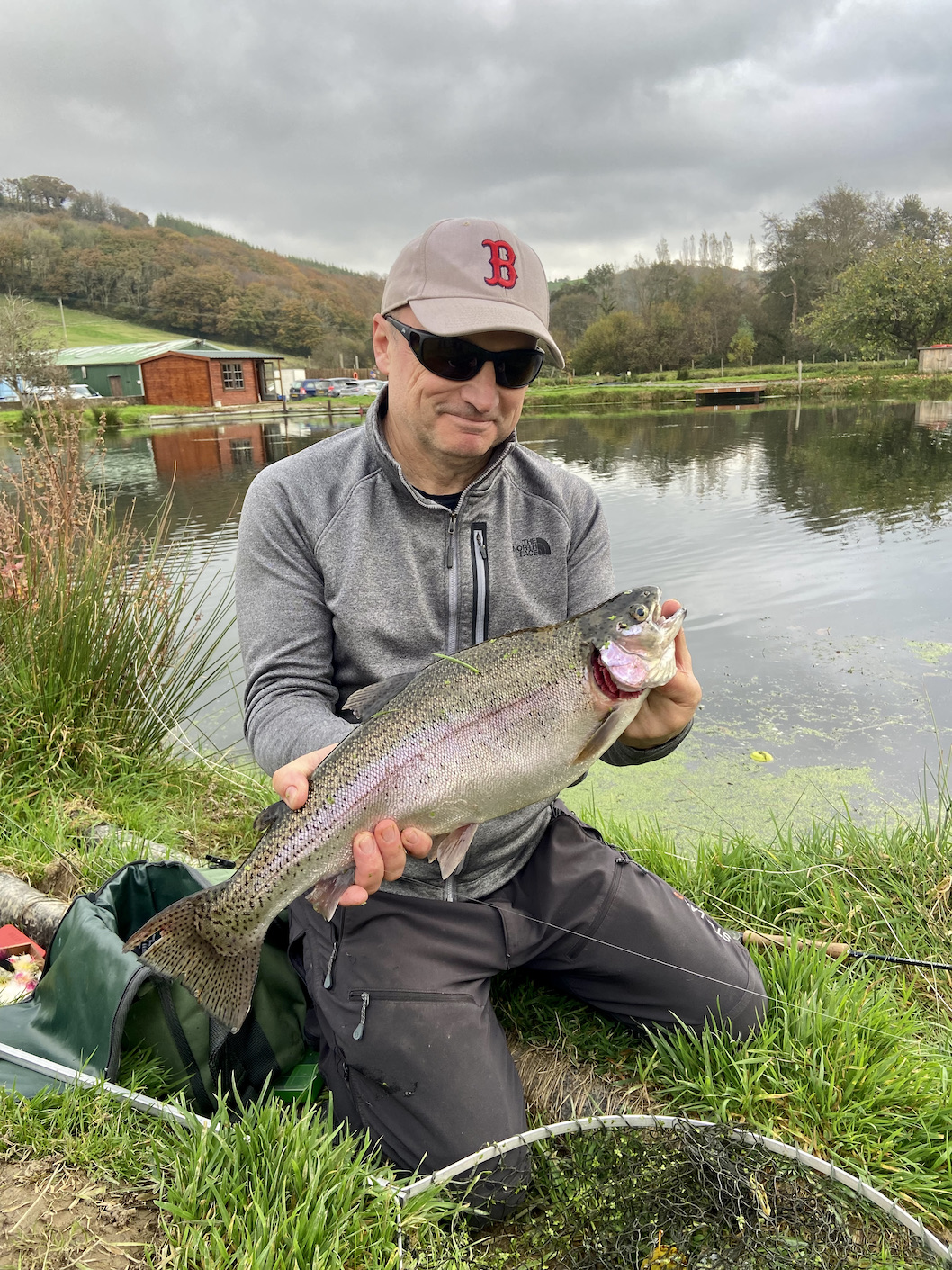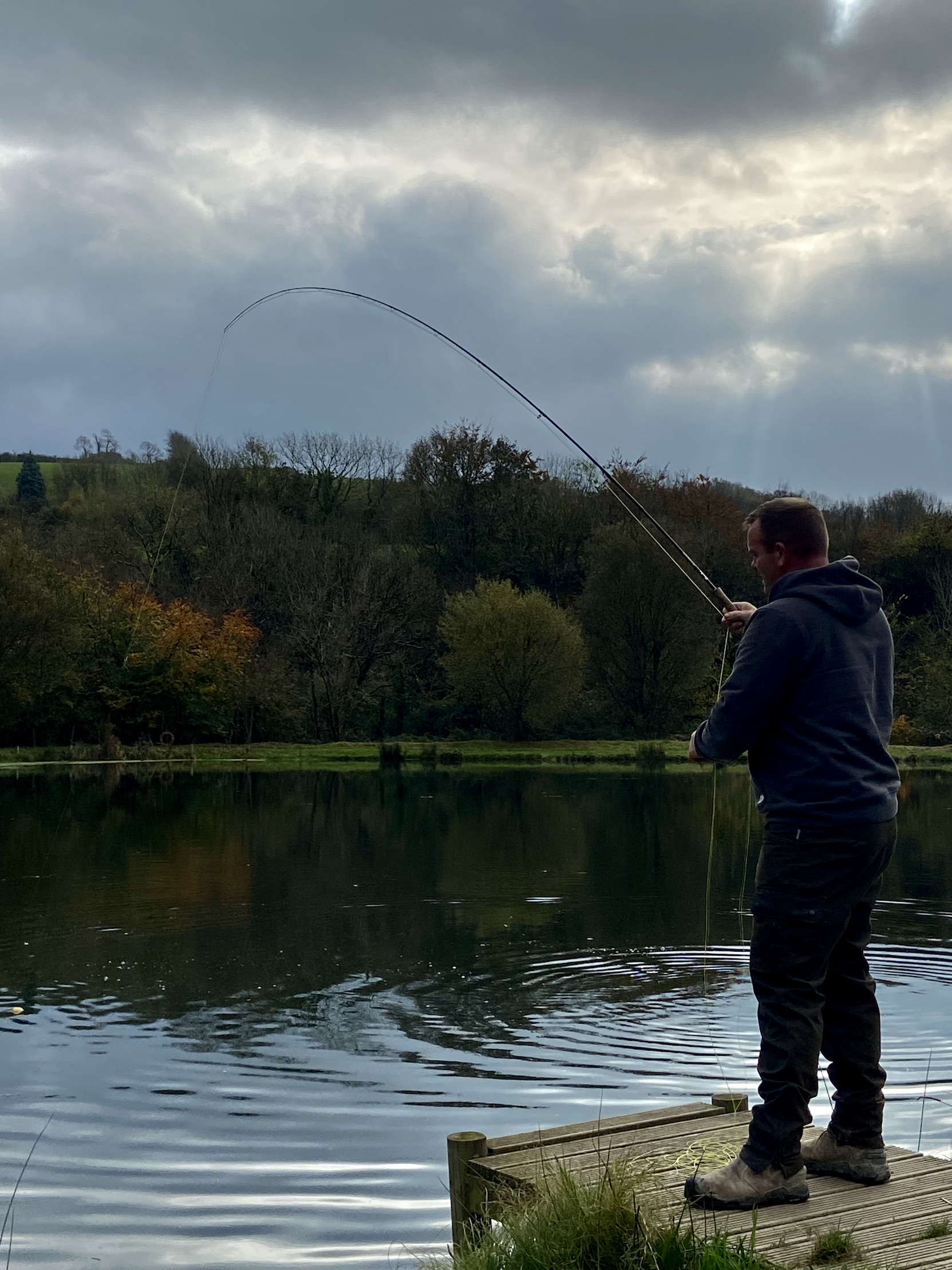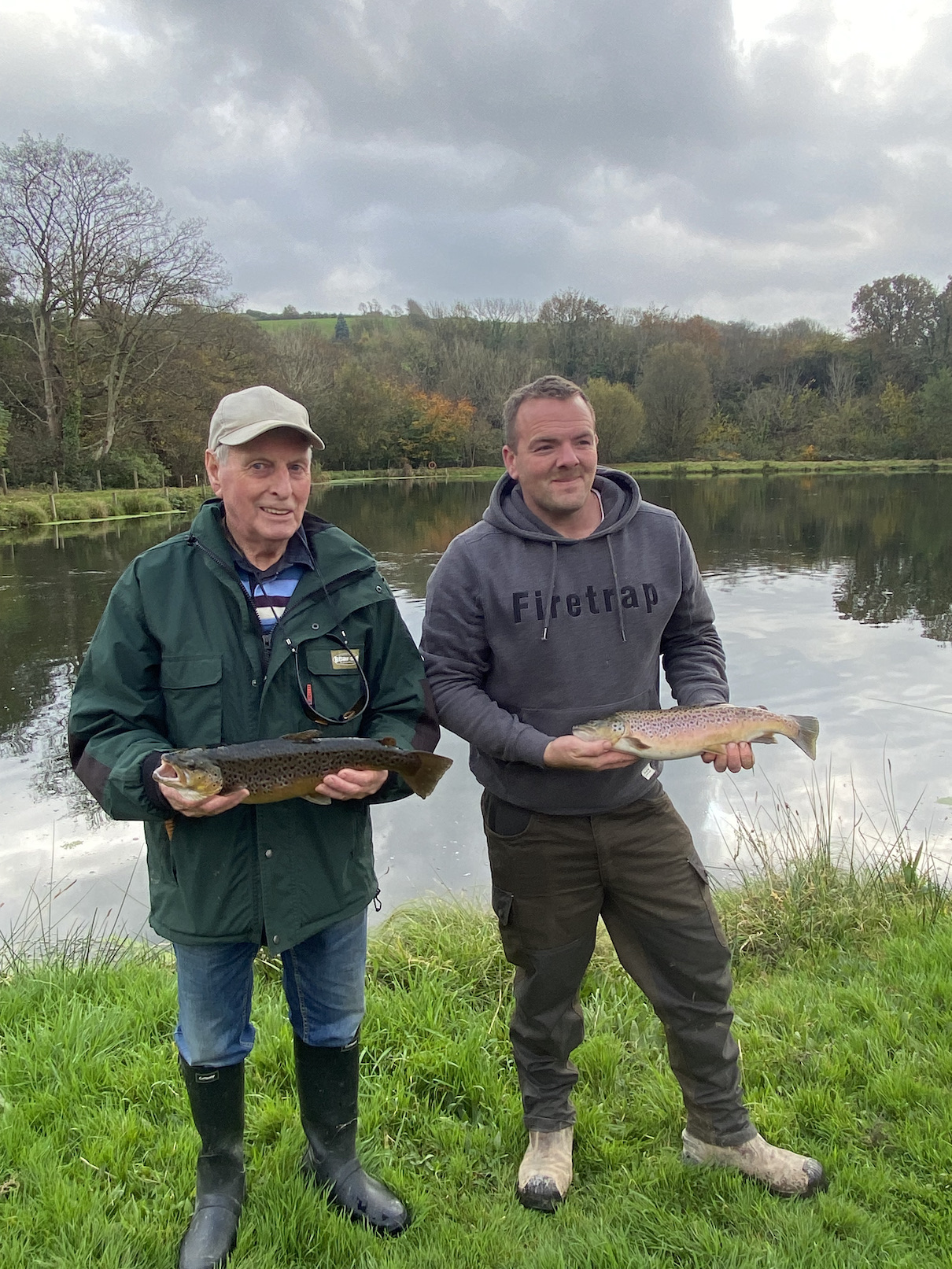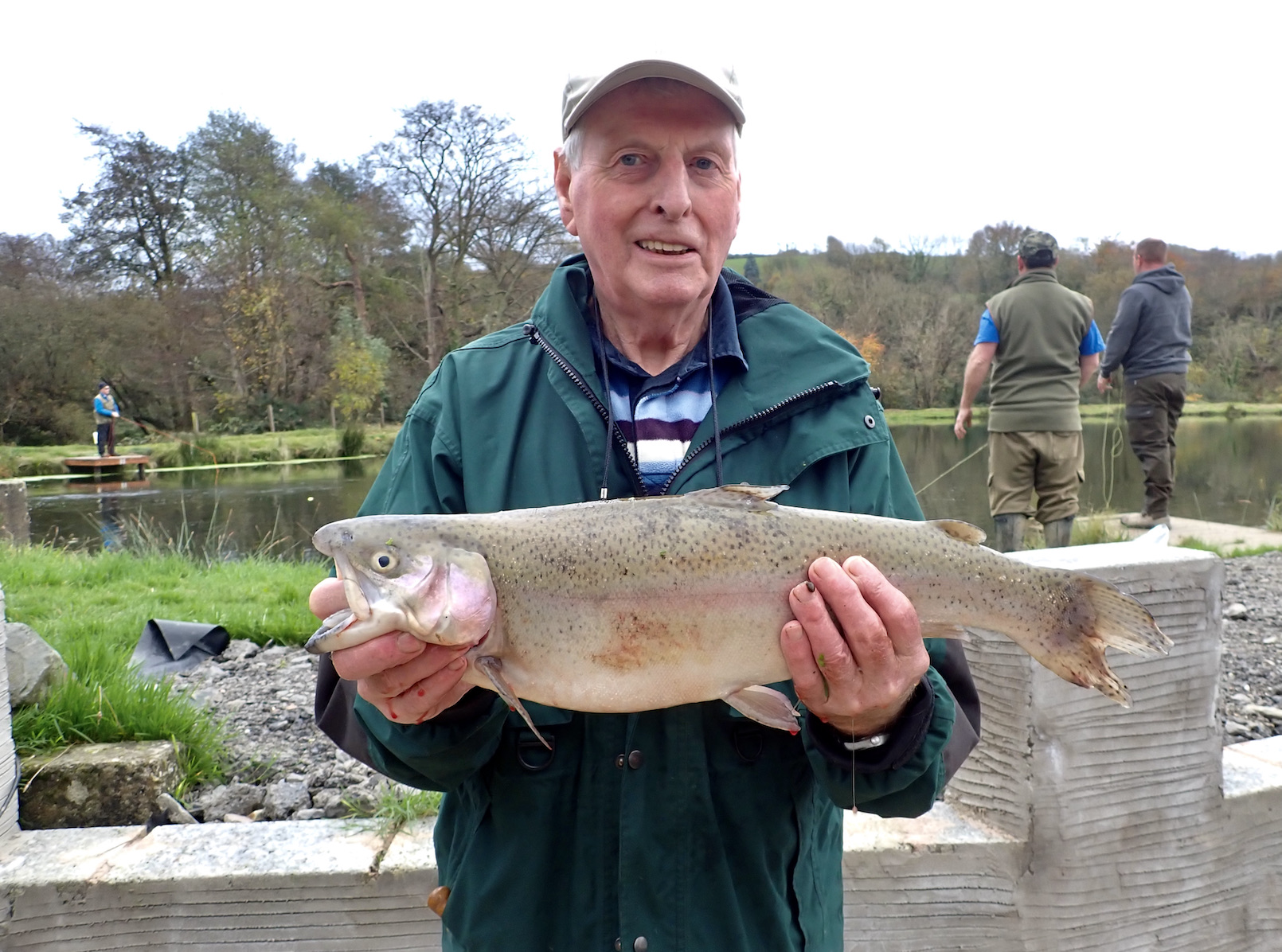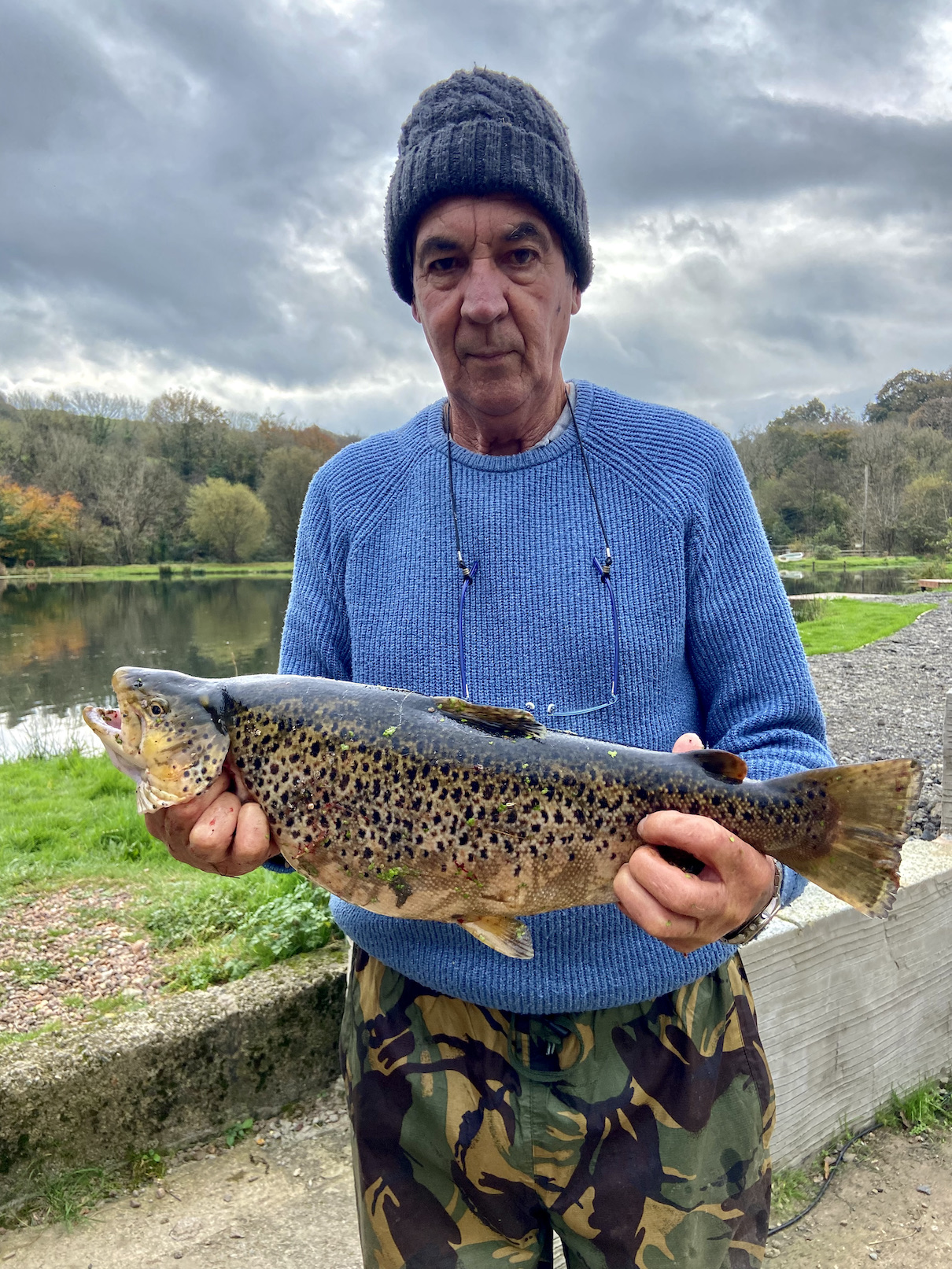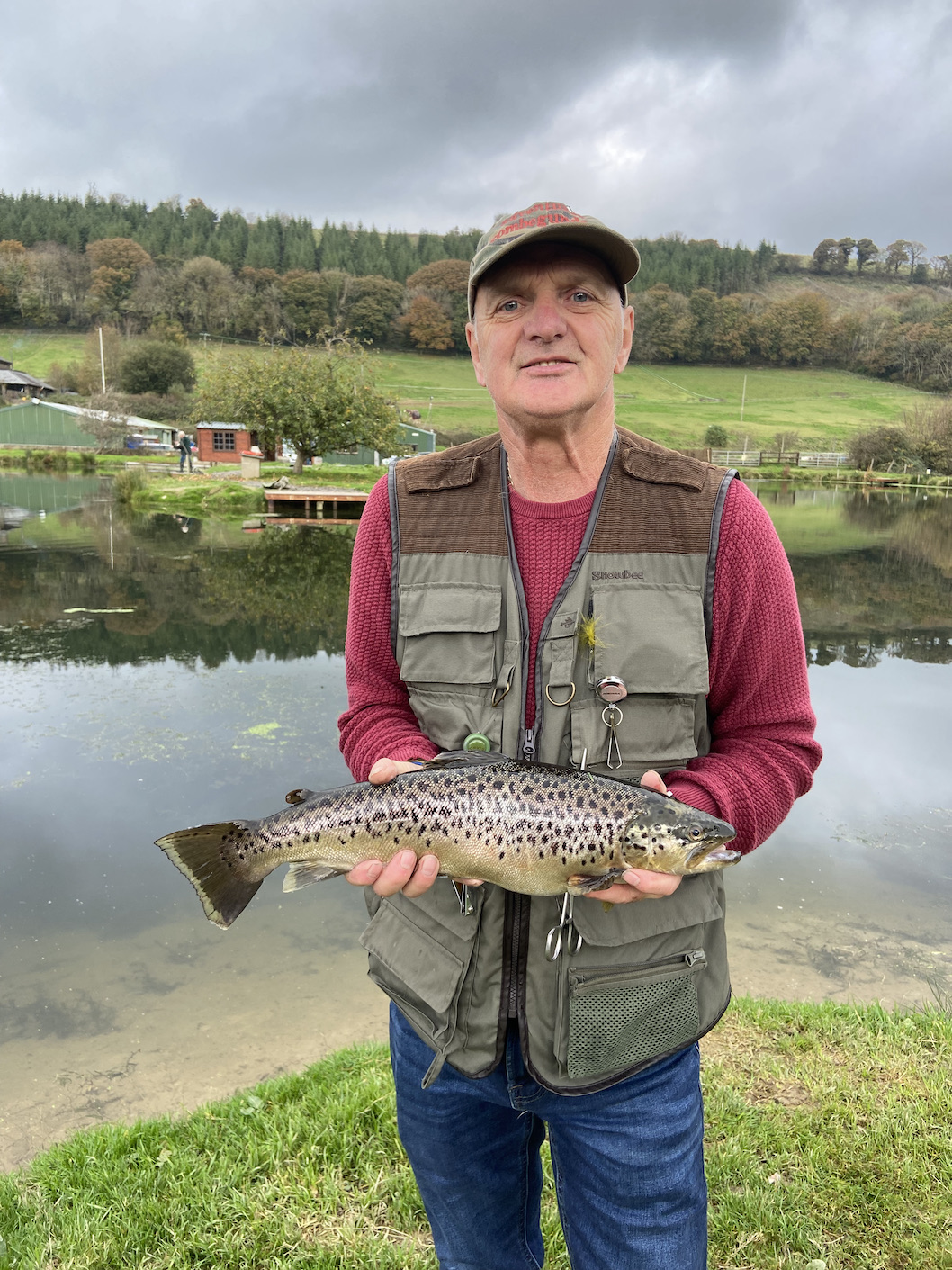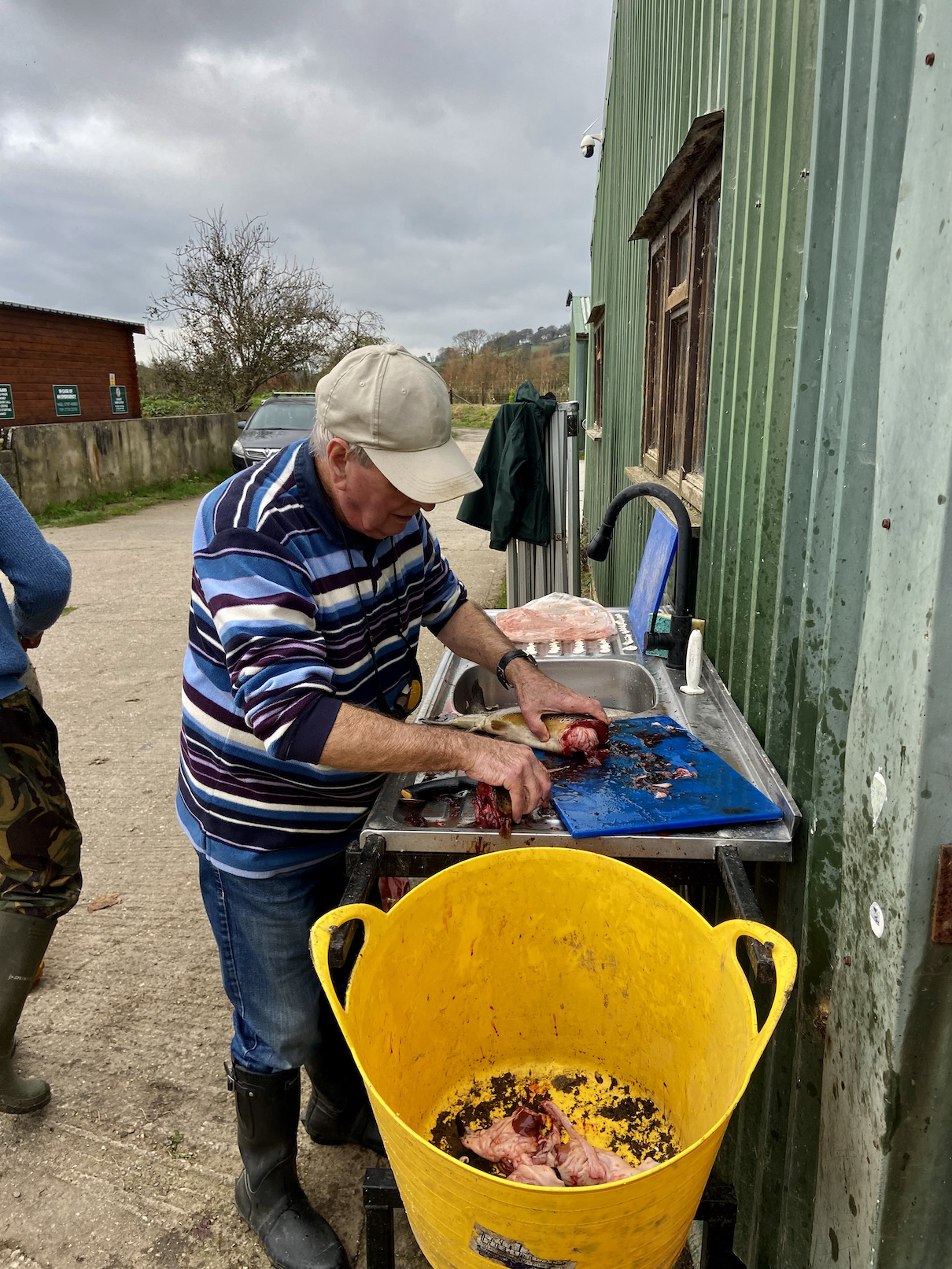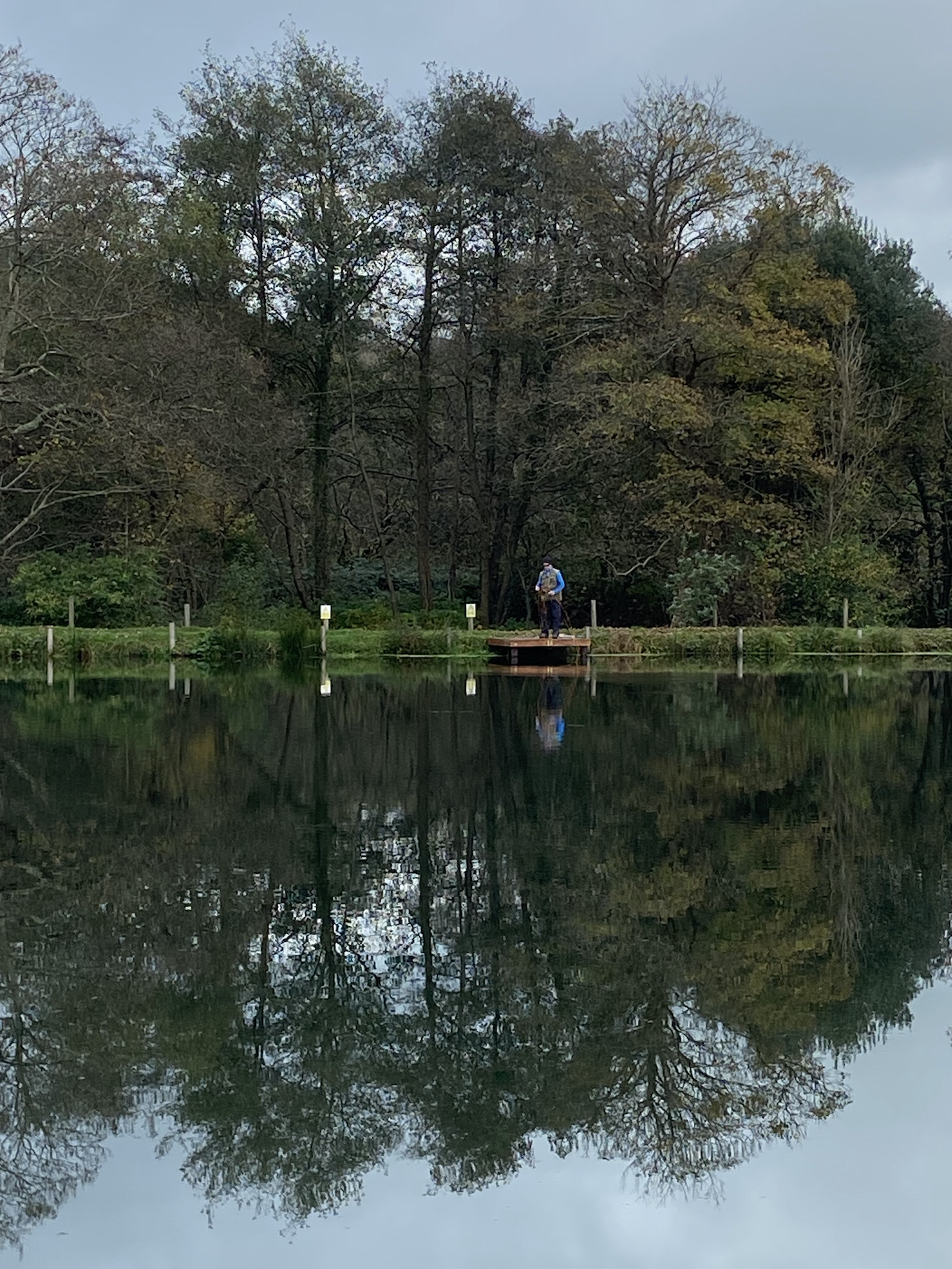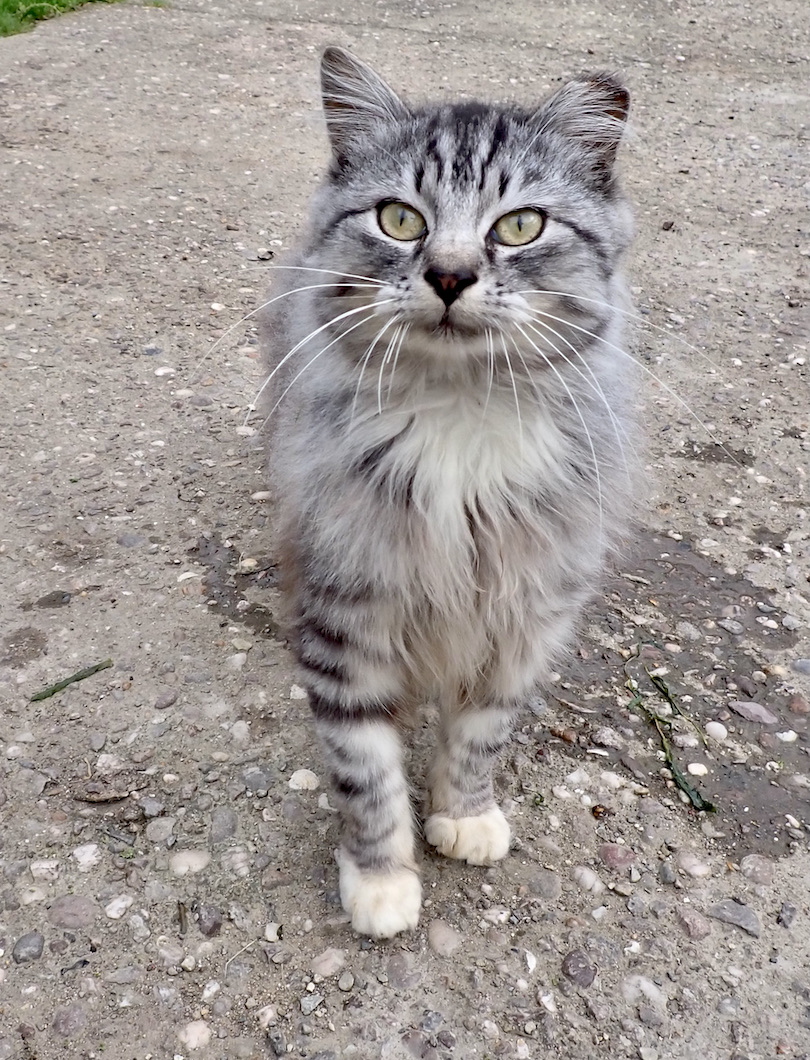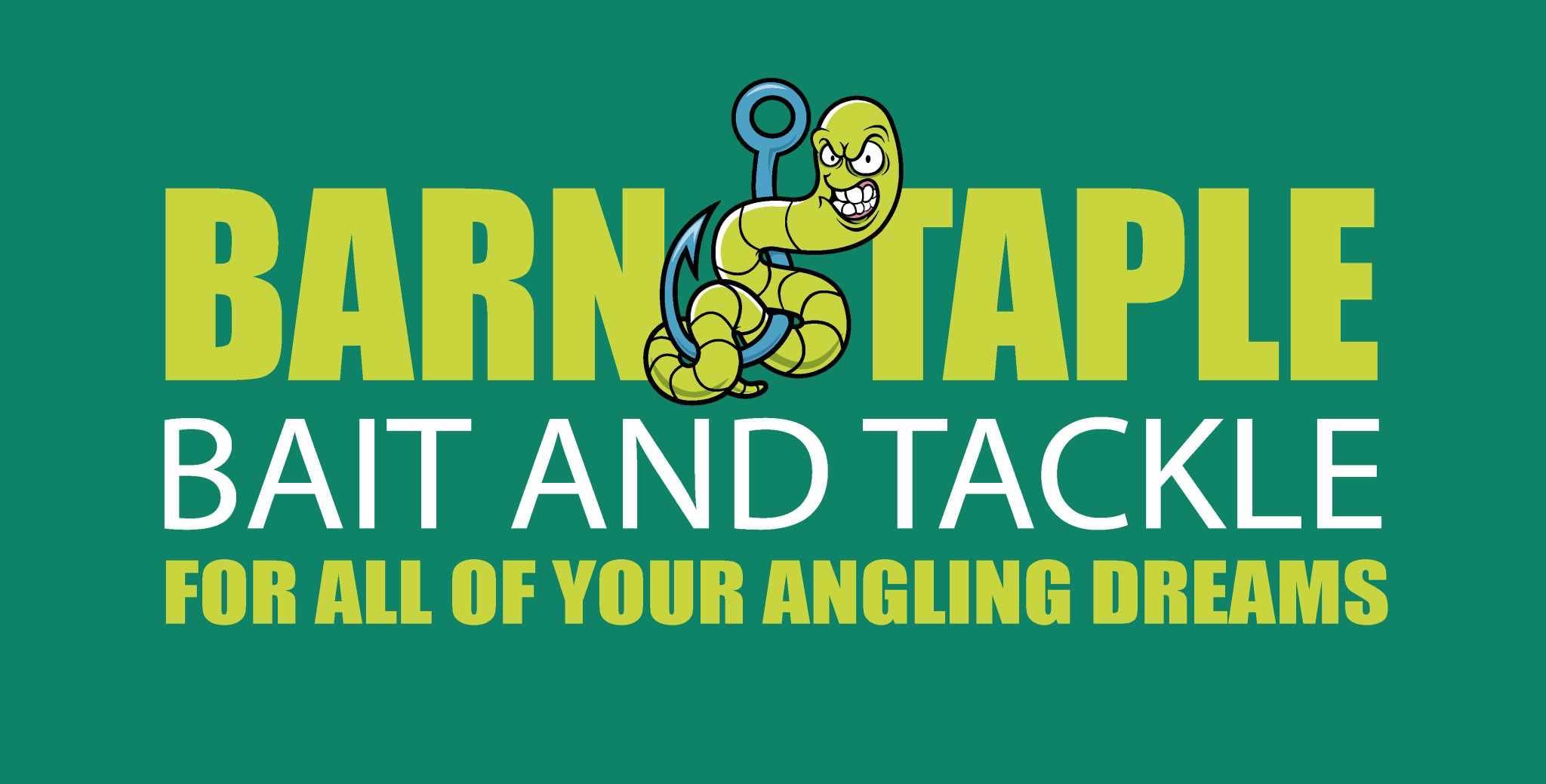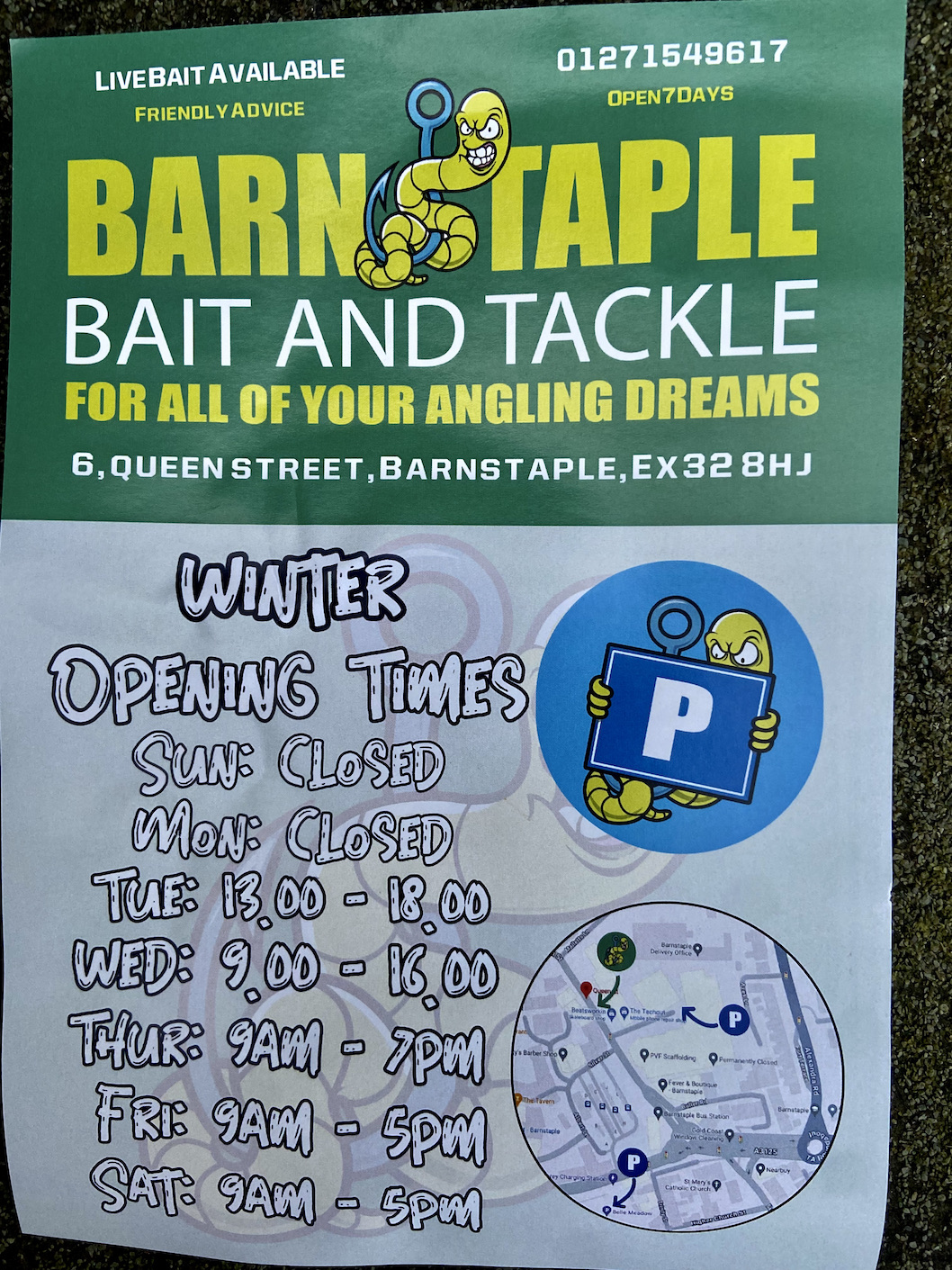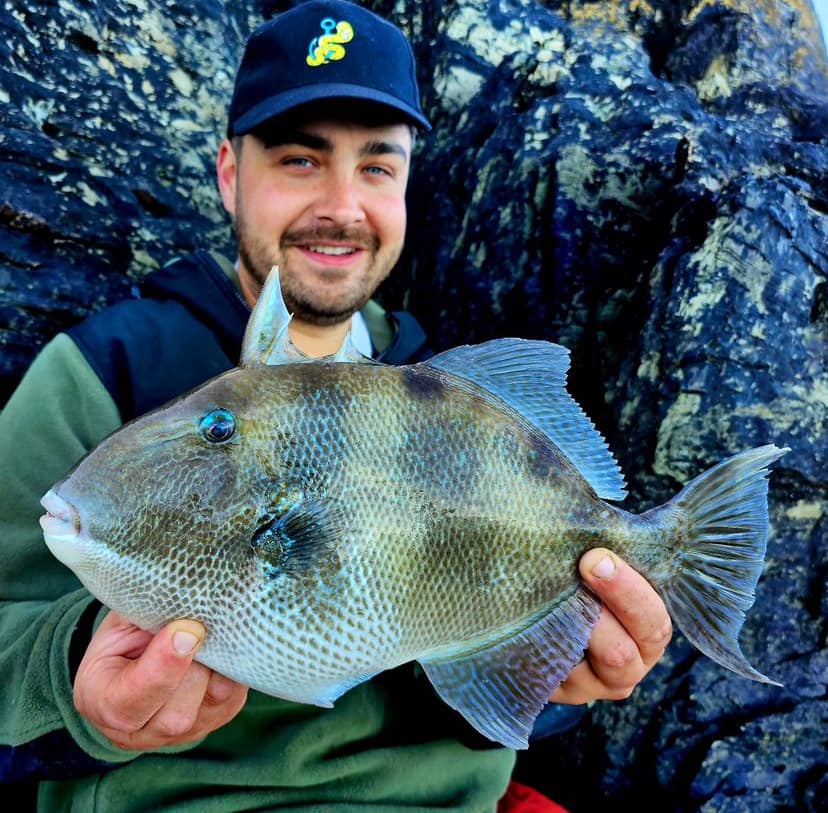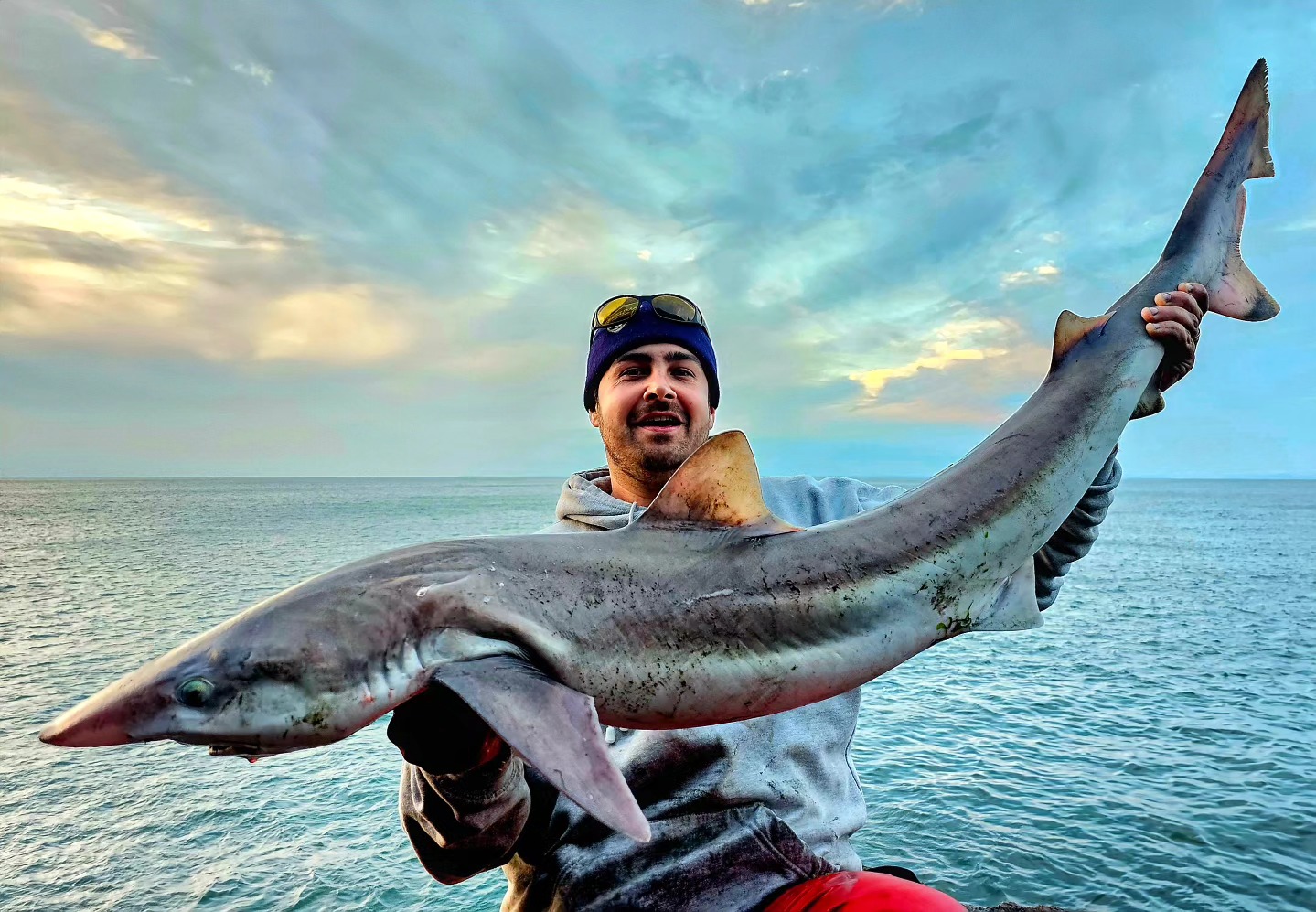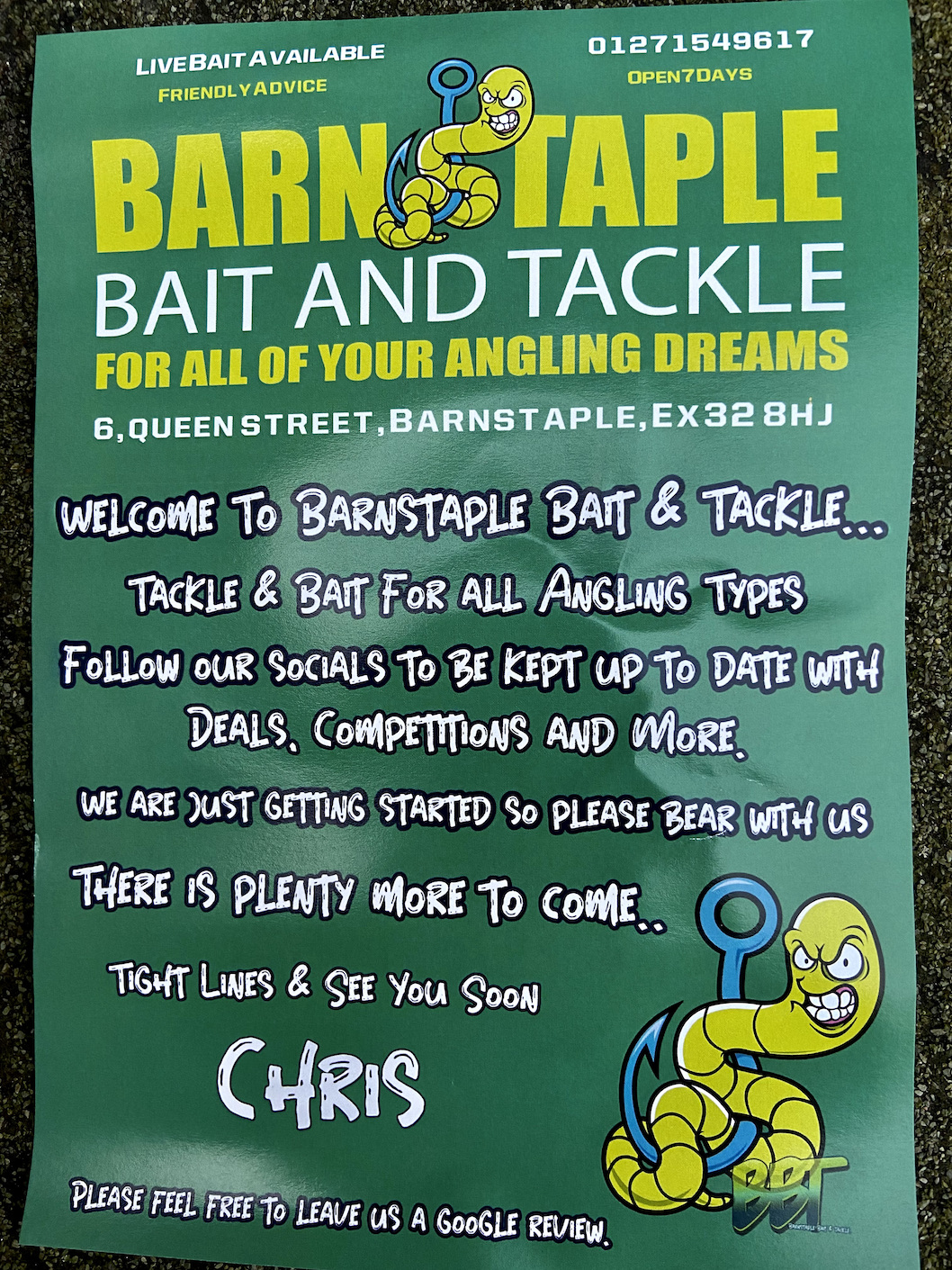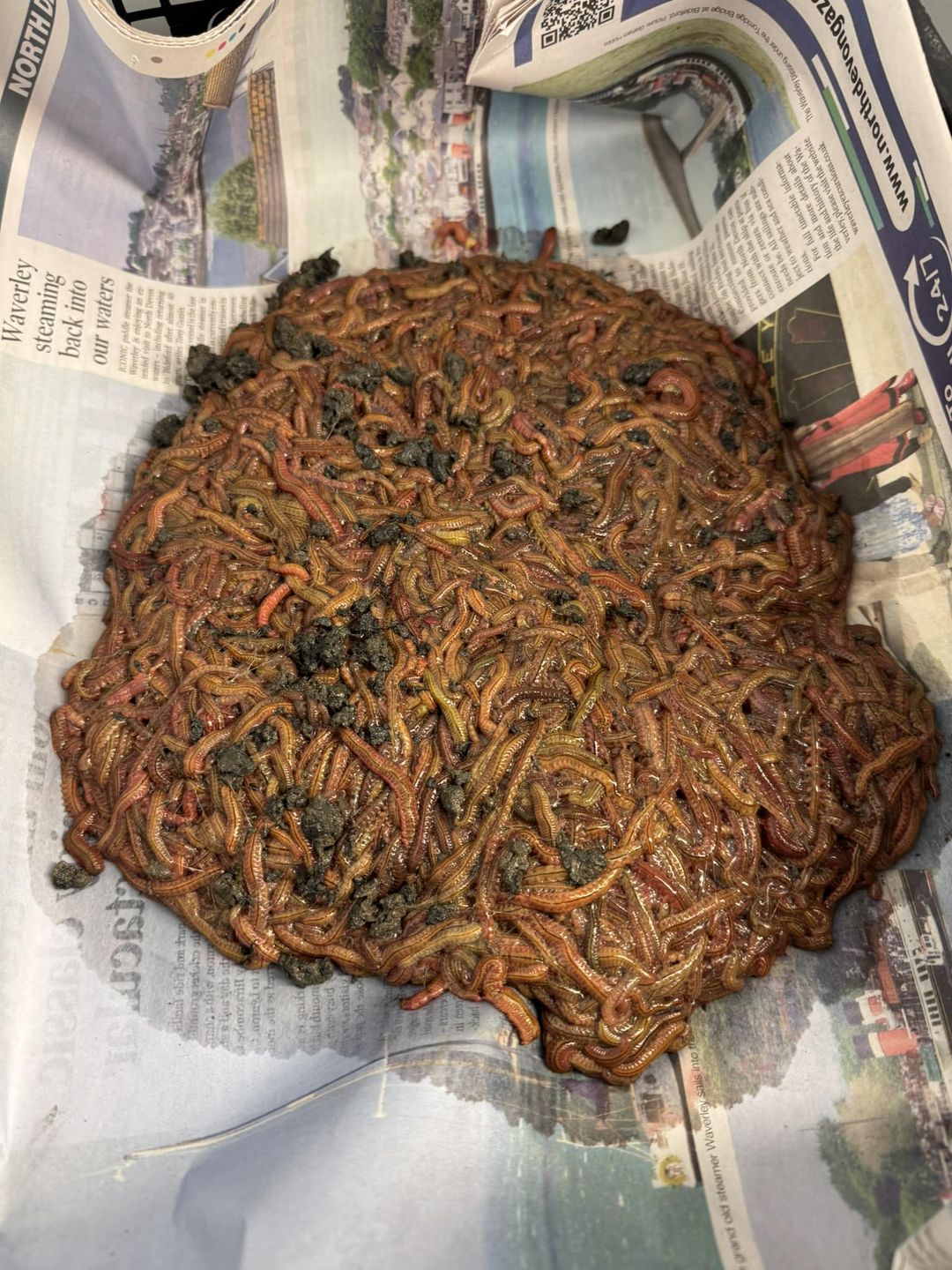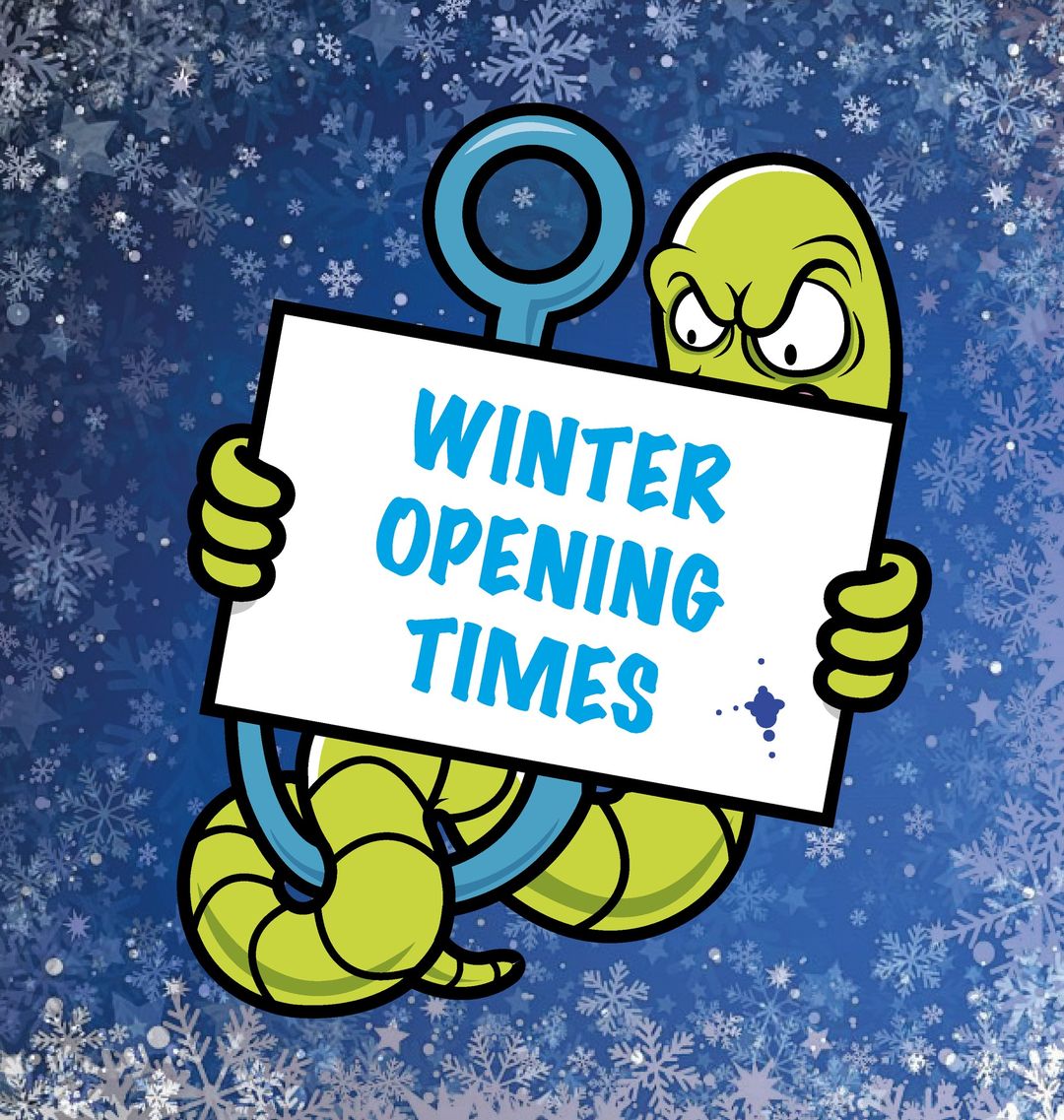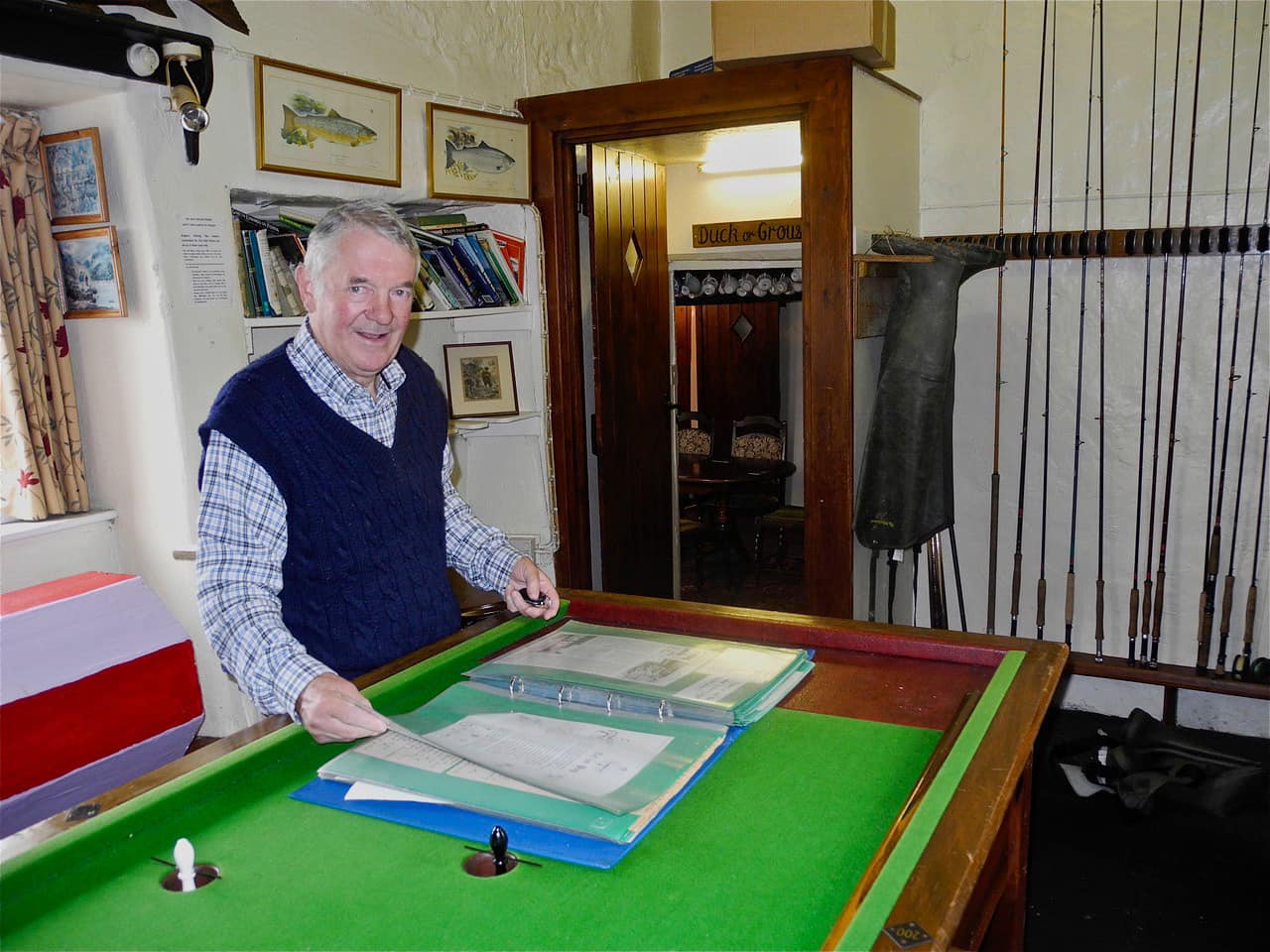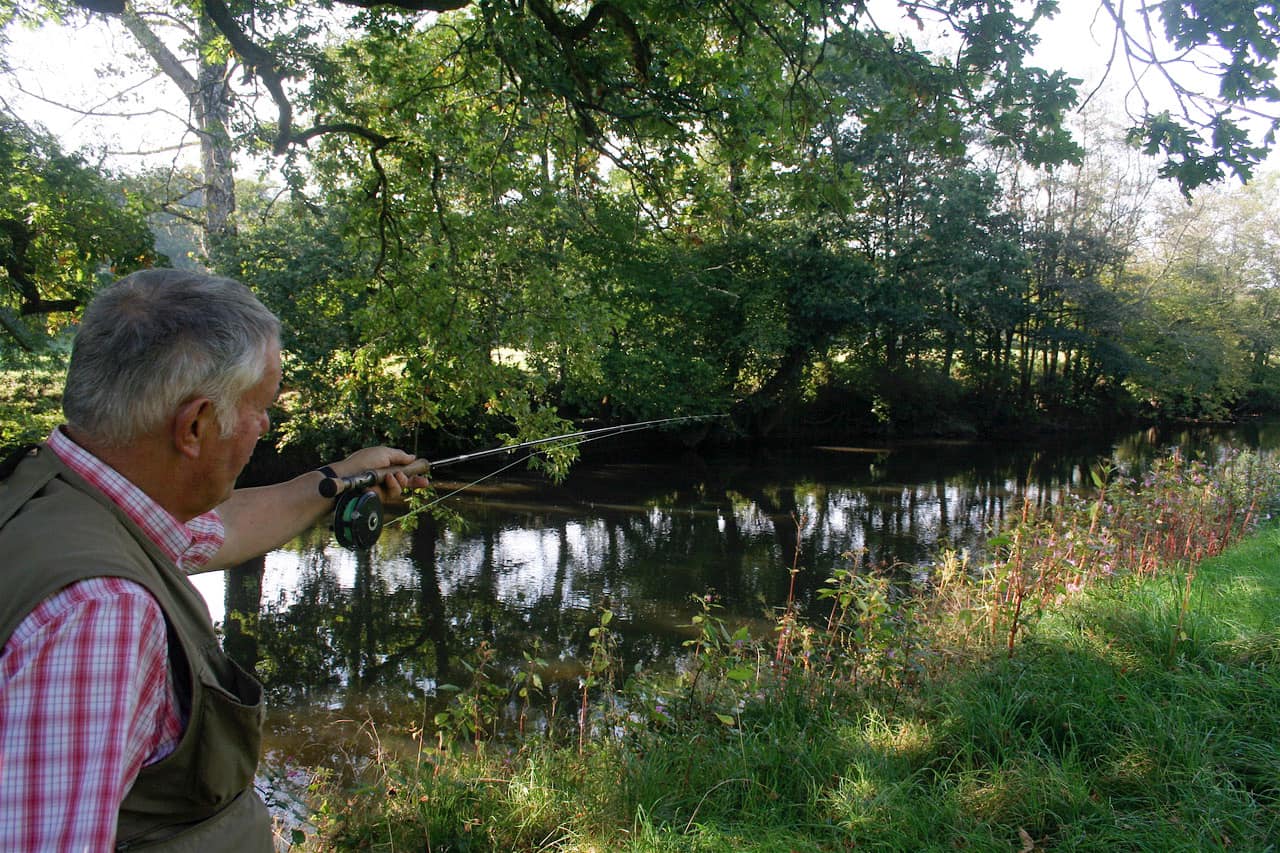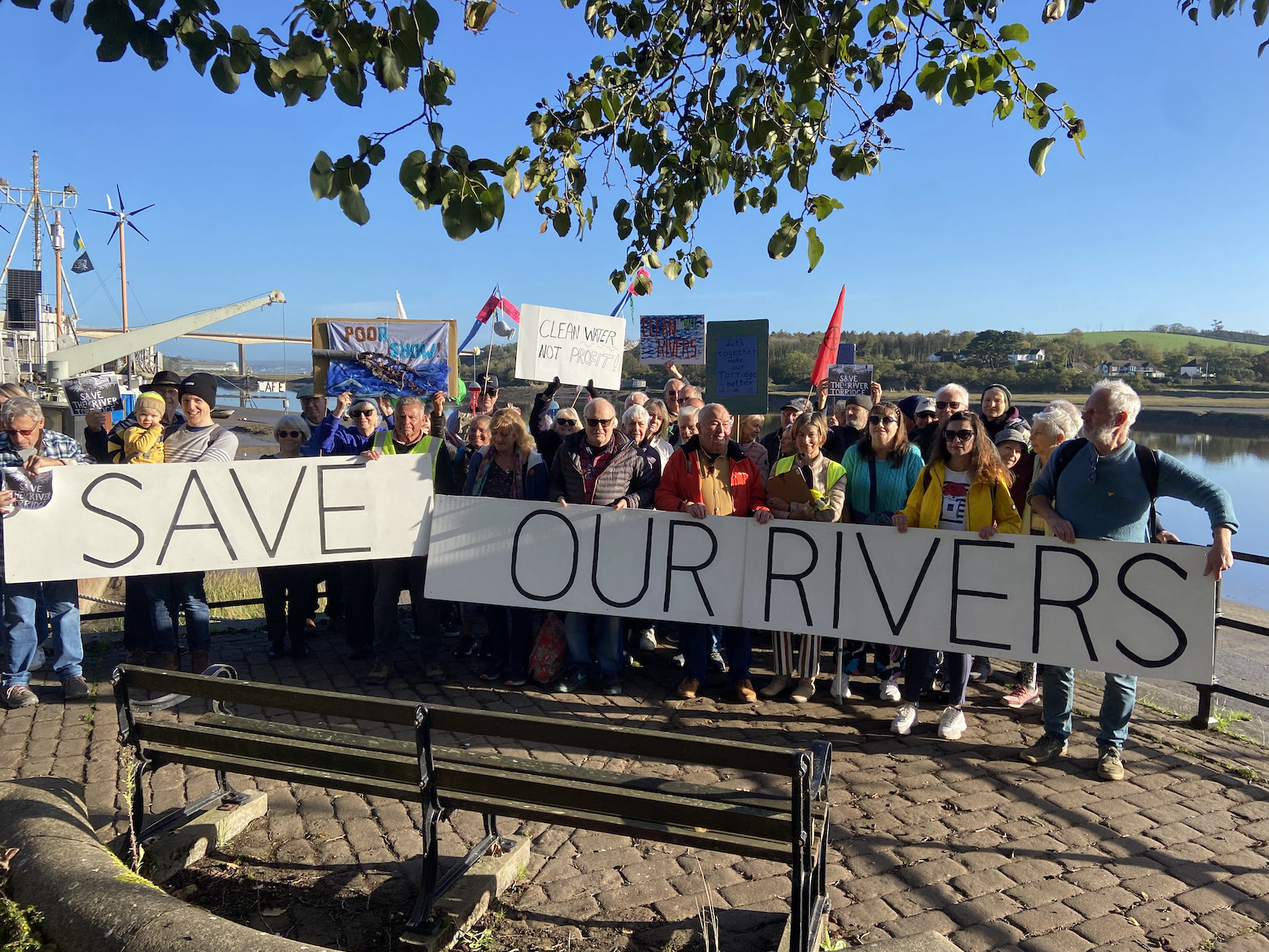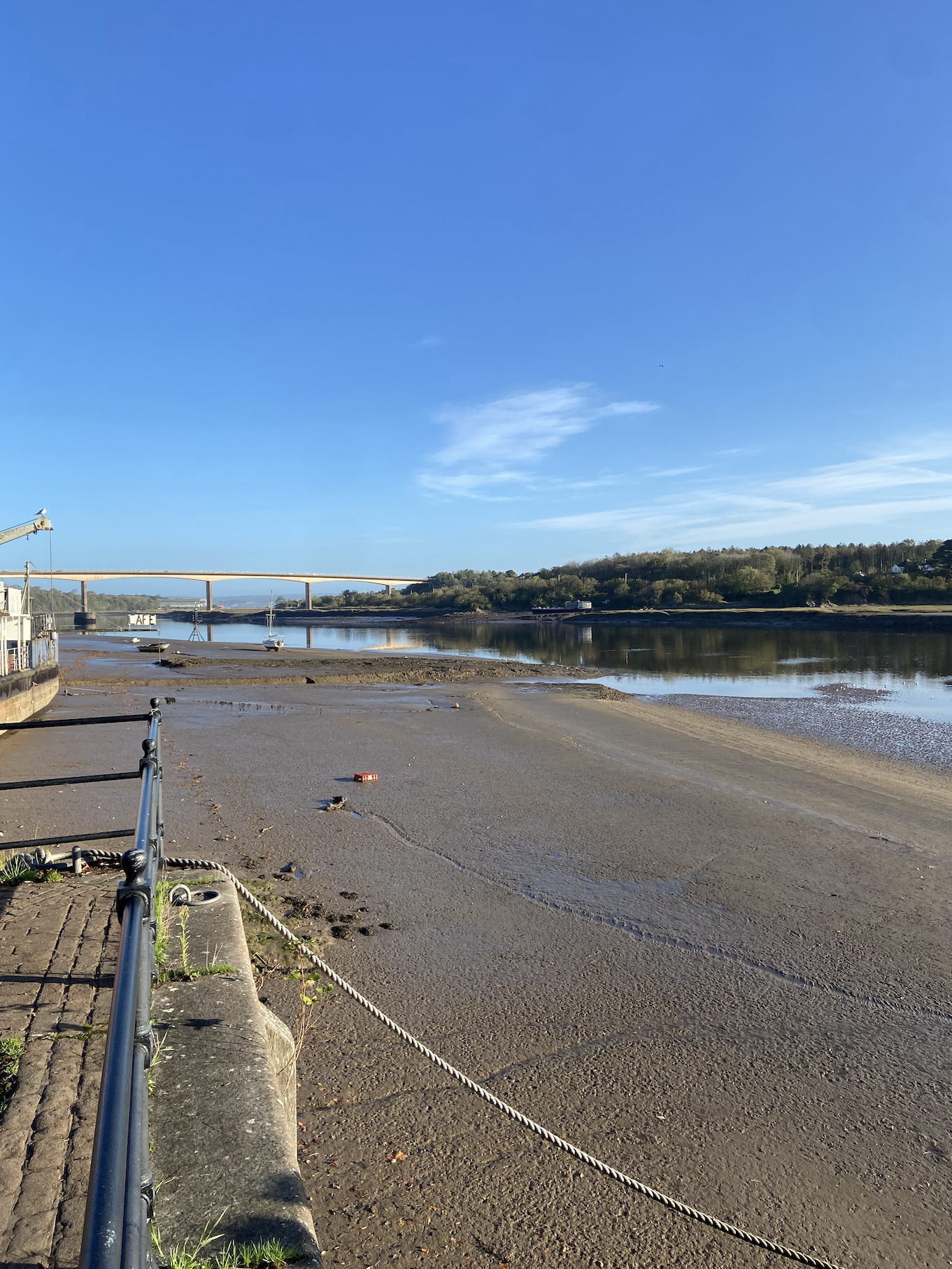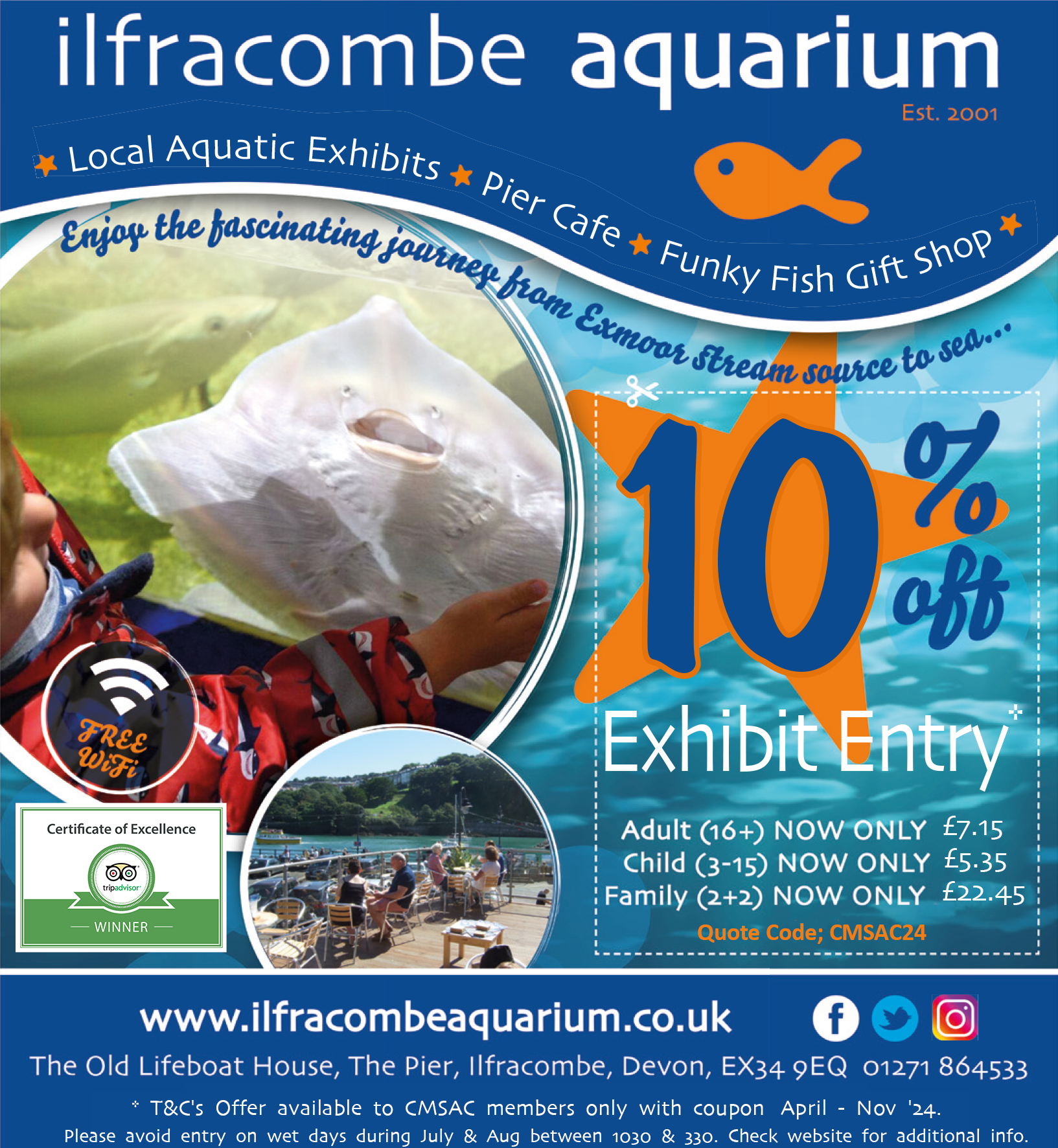
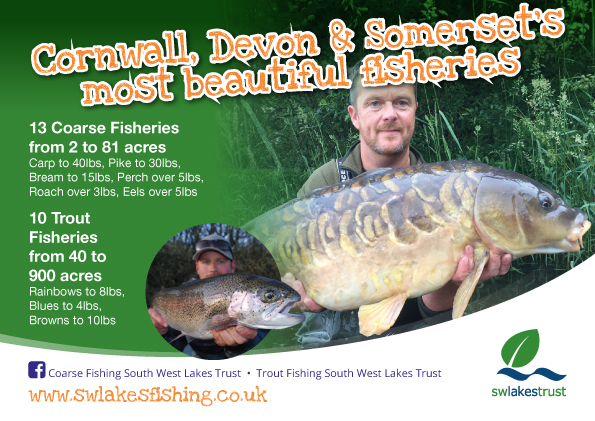
October 2024
Cooler temperatures and some heavy rain have meant that the fish are generally more eager to feed, with improved catch rates. Levels have started to rise, but this is dependent on the catchment and demand – some reservoirs are now full, while others are still only at around 50% capacity at time of writing.
Fishing:
Kennick – The fishing continued to improve over the month, with rod averages up to 3.7 fish per visit. Fish have been well dispersed around the lake, with the Narrows and East Wall regularly appearing on catch returns. Trout have been caught at most depths, from the surface (Foam Beetles, Dry Sedges and Black Gnats), subsurface (Damsels, Hares Ears, Montanas and Blue Zulus), and in the deeper water (Black Boobies and Bloodworms). Chris Illet (from Newton Abbot) caught four rainbows using a small pink Booby and Sedgehog patterns while fishing a fast sink-tip and short leader in the shallows around a weed bed, and noted that fish feeding on fry along the west bank. Graham Roberts caught three rainbows to 2lb 8oz, finding fish rising to dries, as well as getting pulls and knocks from both sub-surface and deep-fished methods.
Siblyback – The fishing at Siblyback dramatically improved over the month, with anglers averaging just under five fish per rod. Crylla, Two Meadows, Stocky Bay and West Bank proved to be the most productive locations, with fish feeding either from or just below the surface, and floating line tactics working well. Dry Foam Beetles, Daddy Longlegs and Sedgehogs caught surface-feeding fish, while deeper fish were caught using Montanas, Black and Yellow Buzzers and Black Snakes fished with a slow retrieve. Keith Burnett (from Newquay) caught fifteen rainbows to 2lb 8oz, and lost one much larger fish. Mick Dodkins (from St Germans) caught five rainbows to 2lb 8oz using a Cats Whisker on a slow intermediate line from the bank at Two Meadows. Ron Wilday (from Liskeard) caught two rainbows at 2lb, using a Blue-Tip PTN while fishing in Crylla Bay. Water levels are 75%.
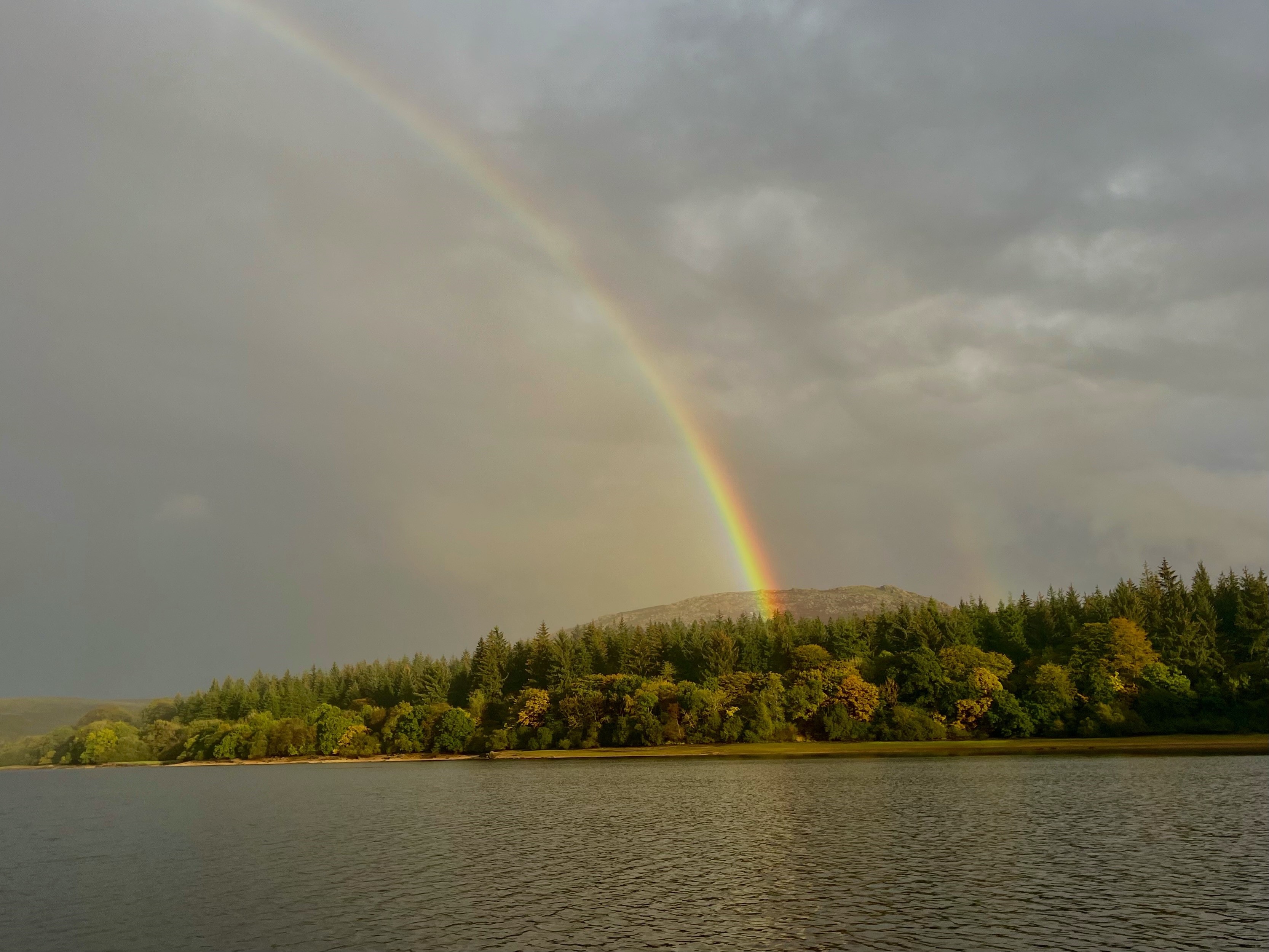
Burrator – Anglers averaged 3.8 fish per visit, with Longstone, Pig Trough, Boat Bay and Lawns all proving popular. Intermediate or floating lines with a long leader produced the best results, with fast, slow, and ’figure of eight’ retrieves all catching fish. Surface feeders were caught on Daddy Longlegs and Sedge patterns, while deeper feeders succumbed to Damsels, Buzzers (there were active buzzer hatches throughout the day), PTNs and Hares Ears, or lures such as Blobs and Cats Whiskers. Gordon MacLeod (from Tavistock) caught four very fit rainbows to 3lb 4oz on an intermediate line, while Roger Prout (from Pensilva) caught ten rainbows to 2lb 12oz, using a floating line and varied retrieve. Alan Lawson (from Plymouth) caught seven rainbows to 1lb 12oz, casting a dry Daddy to rising fish at Longstone before the rain came, and then a pulled nymph at the top of Narrator Bank. Water levels are now up to 77% capacity at the time of writing.
Stithians – Water levels are at 56% capacity. Anglers averaged 1.5 fish per visit, with most fish being caught from the banks at Yellowort, Pipe Bay, Hollis Bank, Goonlaze and Deep Bank. Generally floating line tactics have been most successful, with fish taking Dry Daddies, Black Hoppers, Black and Peacock Spiders fished in the surface film, Soldier Palmers and Black Pennels.

Fernworthy – Water levels have risen rapidly to 100% over the month, with plenty of fish rising to Craneflies and Sedges. Anglers averaged 1.8 fish per rod, with many taking dry sedges and Black Gnats, as well as Pheasant Tails, Damsel Nymphs, Bibios and Connemara Black. Feeding fish were well spread out, with trout being caught from the East Bank, North Bank, by the dam and by the permit hut. Daniel Robson (from Tavistock) caught a bag of nine nice browns to 1lb using small nymphs fished fairly statically.
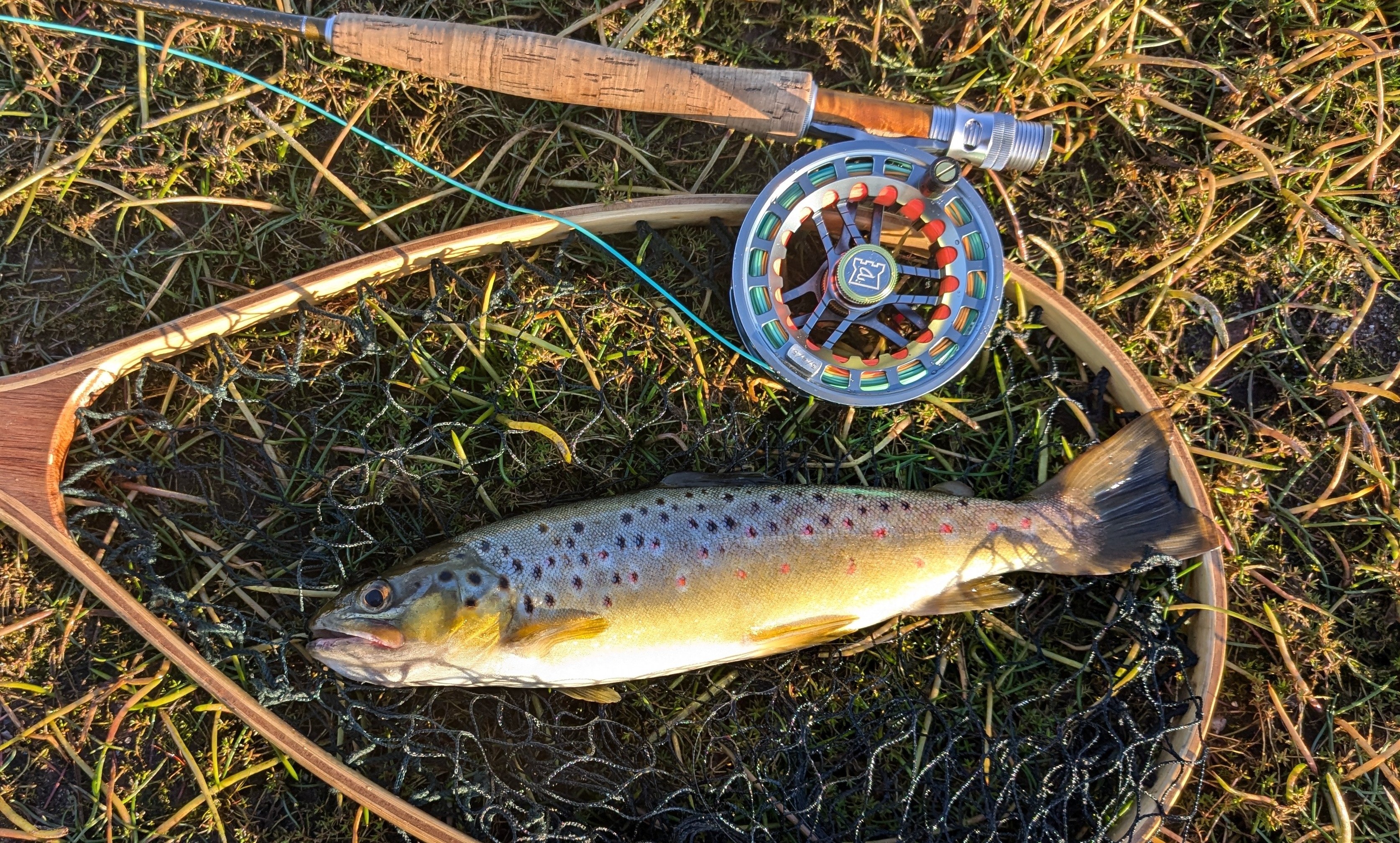
Colliford – Here the excellent sport continued, with anglers averaging up to 6.5 fish per rod in one week. The east bank, bank by the dam, Redhill Down, Stuffells and Browngelly proved to be the best locations, with floating-line tactics catching fish feeding from the surface or just below. Foam Daddies, Black Hoppers, Parachute Adams and Foam Beetles all caught rising fish, while sub-surface feeders were caught on pulled Soldier Palmers, Bibios, Zonkers and Damsels. Dean Boucher (from Gunnislake) caught sixteen browns to 16” using pulled Soldier Palmer, Bibio and Zonker patterns; Chris Brand (from St Austell) caught four browns to 16” using a Bibio Hopper, with fish rising to hatching buzzers, sedges, and damsels. Water levels are now just over 70%.
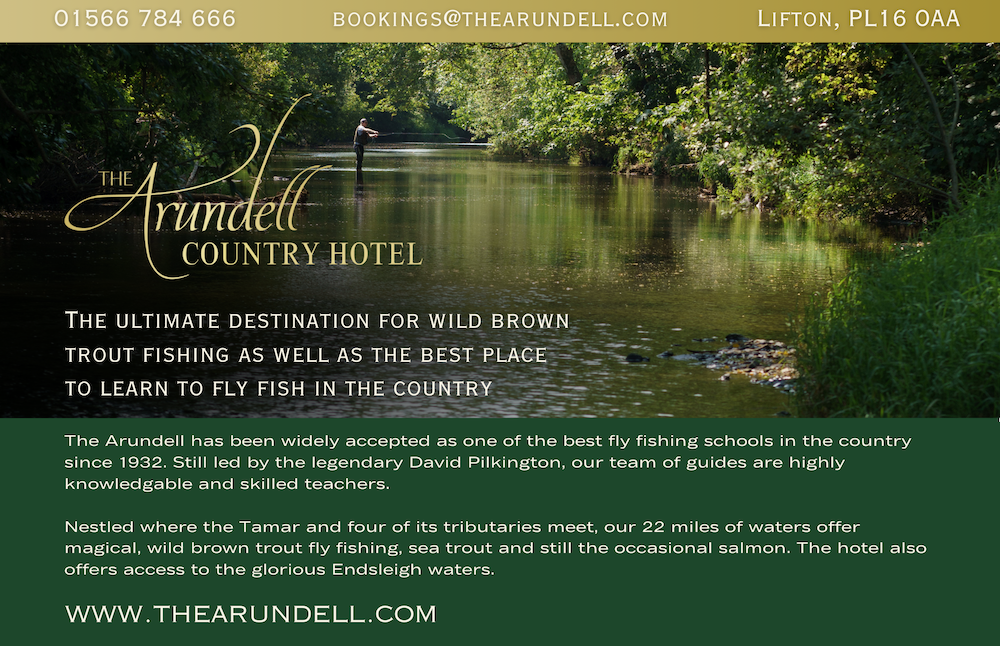
Roadford – The fishing continued to improve, with weekly rod averages up to 4.5 fish per angler. South and East Wortha, Davey’s Bank and North Goodacre produced the best sport, and, with fish rising to hatching buzzers, dry Daddies and Hoppers tempted surface feeders; otherwise, deeper fish were caught using Black Tadpoles, Hares Ears, Soldier Palmers, Zulus and Claret Buzzers. Dean Boucher (from Gunnislake) caught nine browns to 1lb using pulled wets (Soldier Palmer, Zulu and Black Tadpole). The water level is now at 88%.
Please see the Trust’s website (www.swlakestrust.org.uk/trout-fishing) for more information on buying tickets, boat availability, booking and end of season dates. The Brown Trout waters closed for the season on 12 October.
Chris Hall (October 2024)
